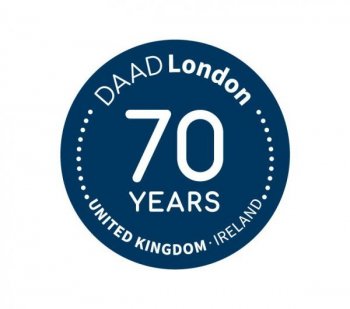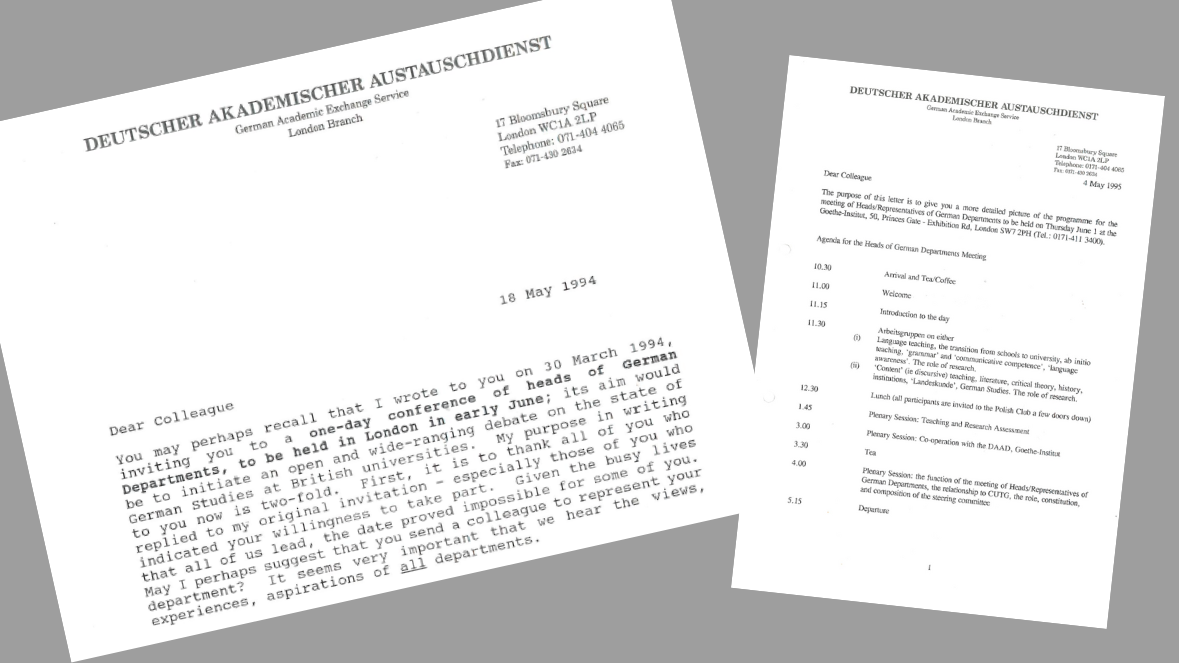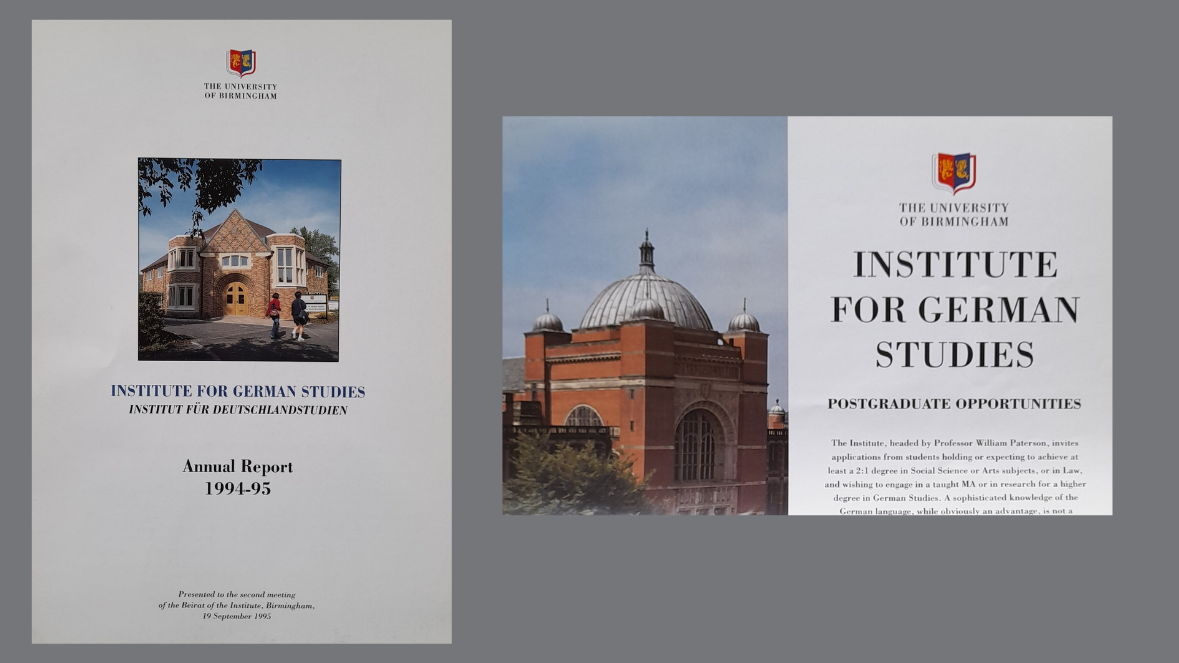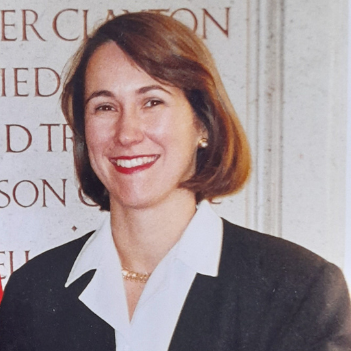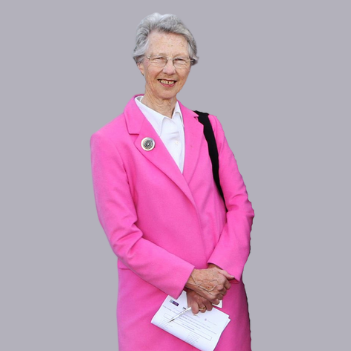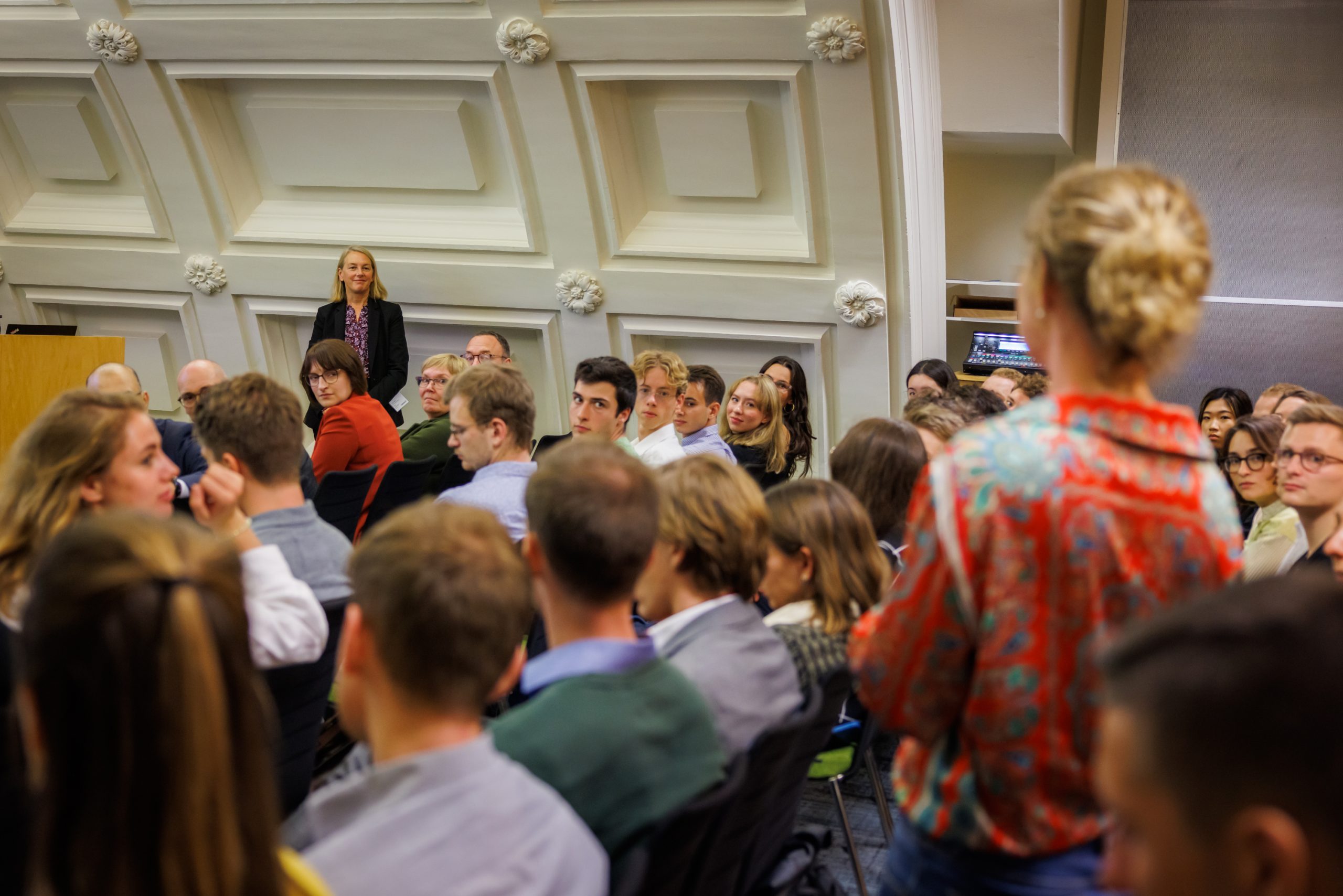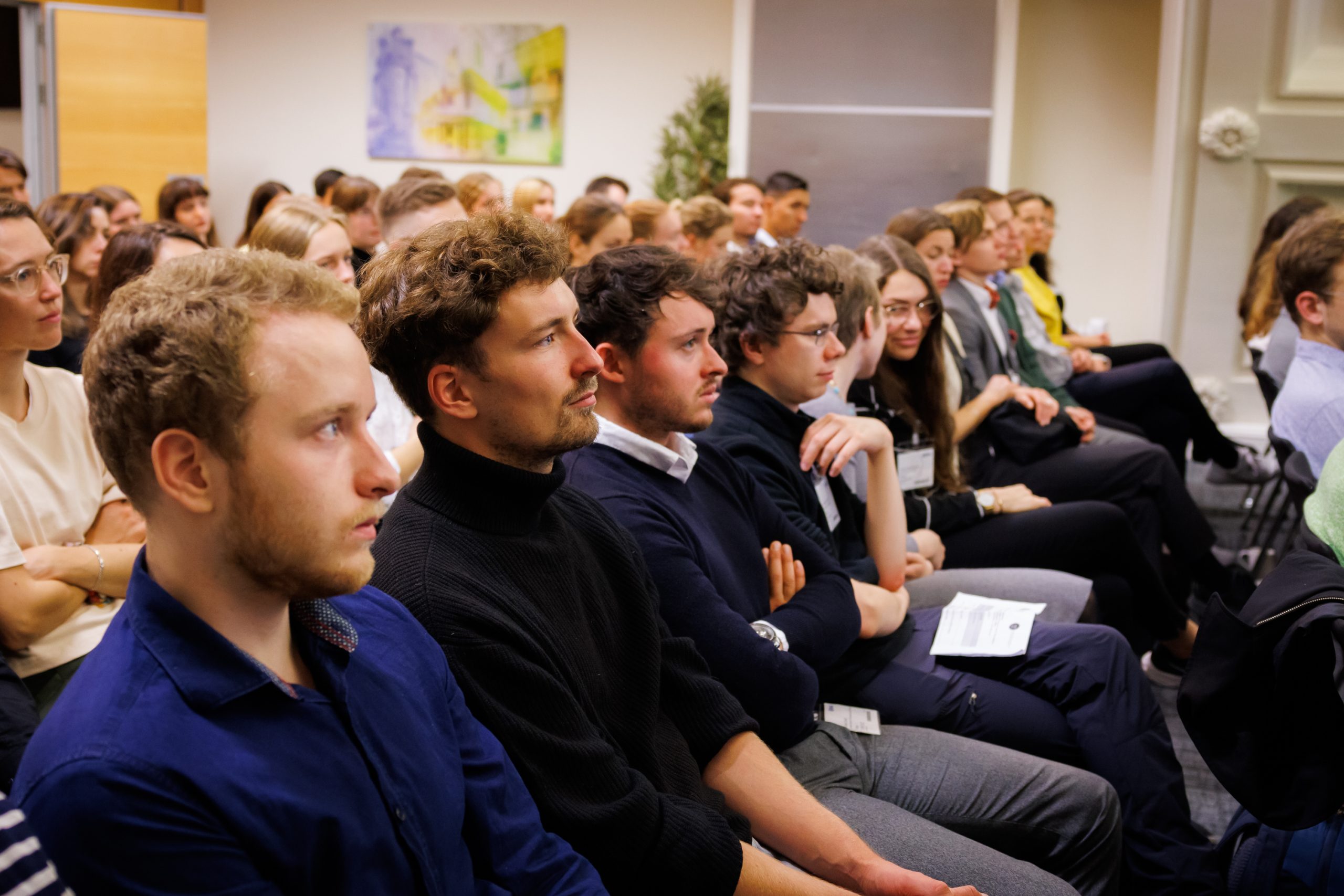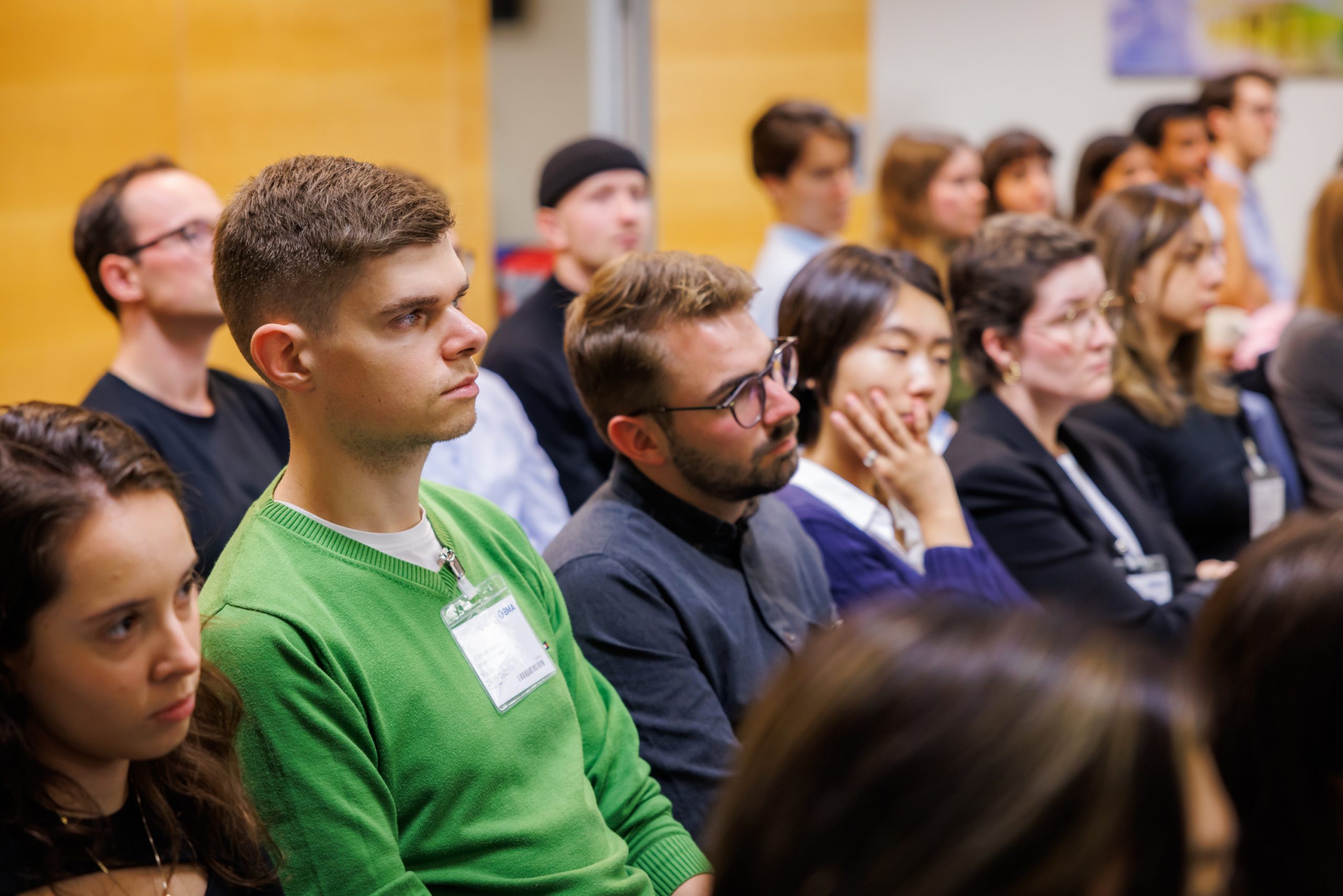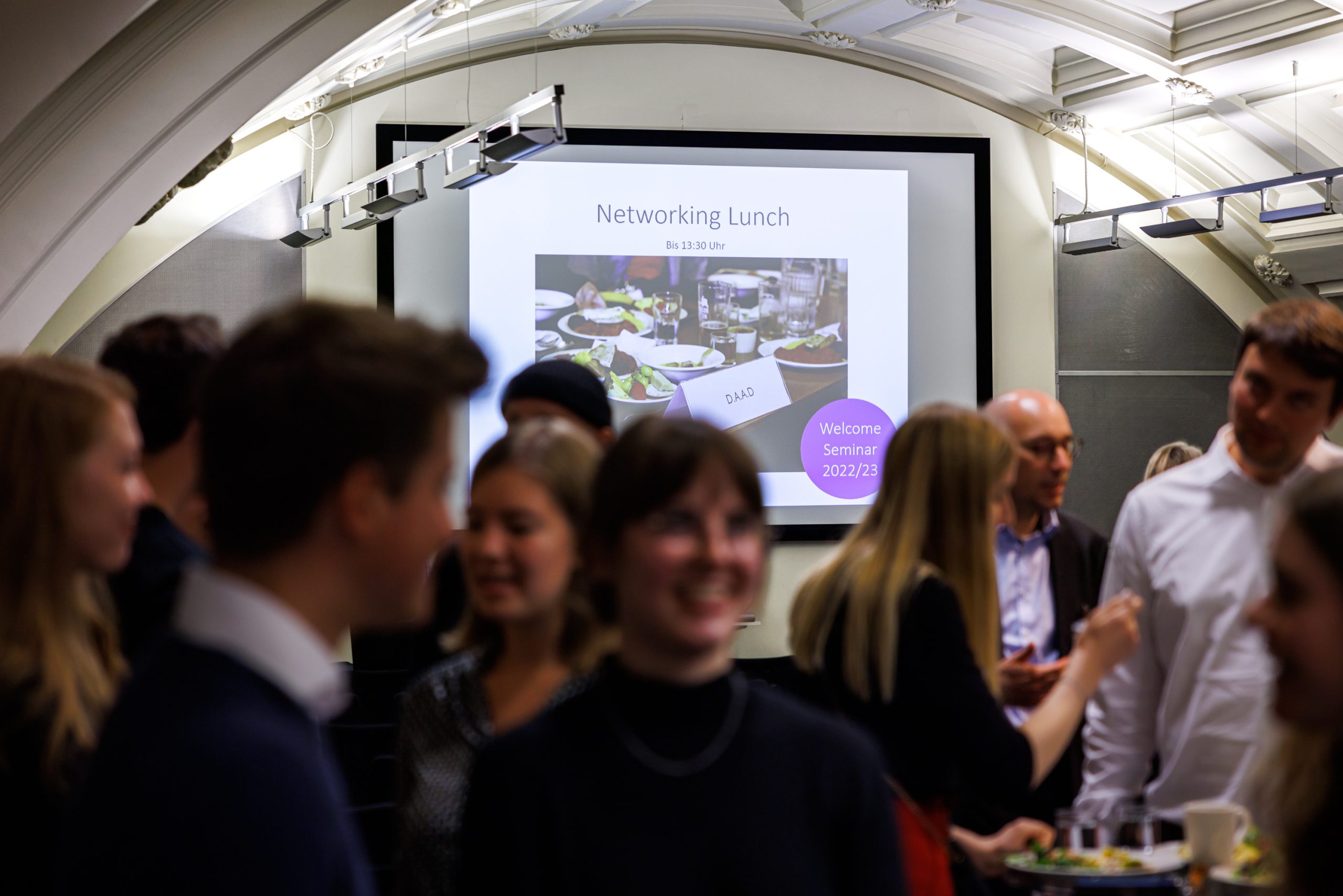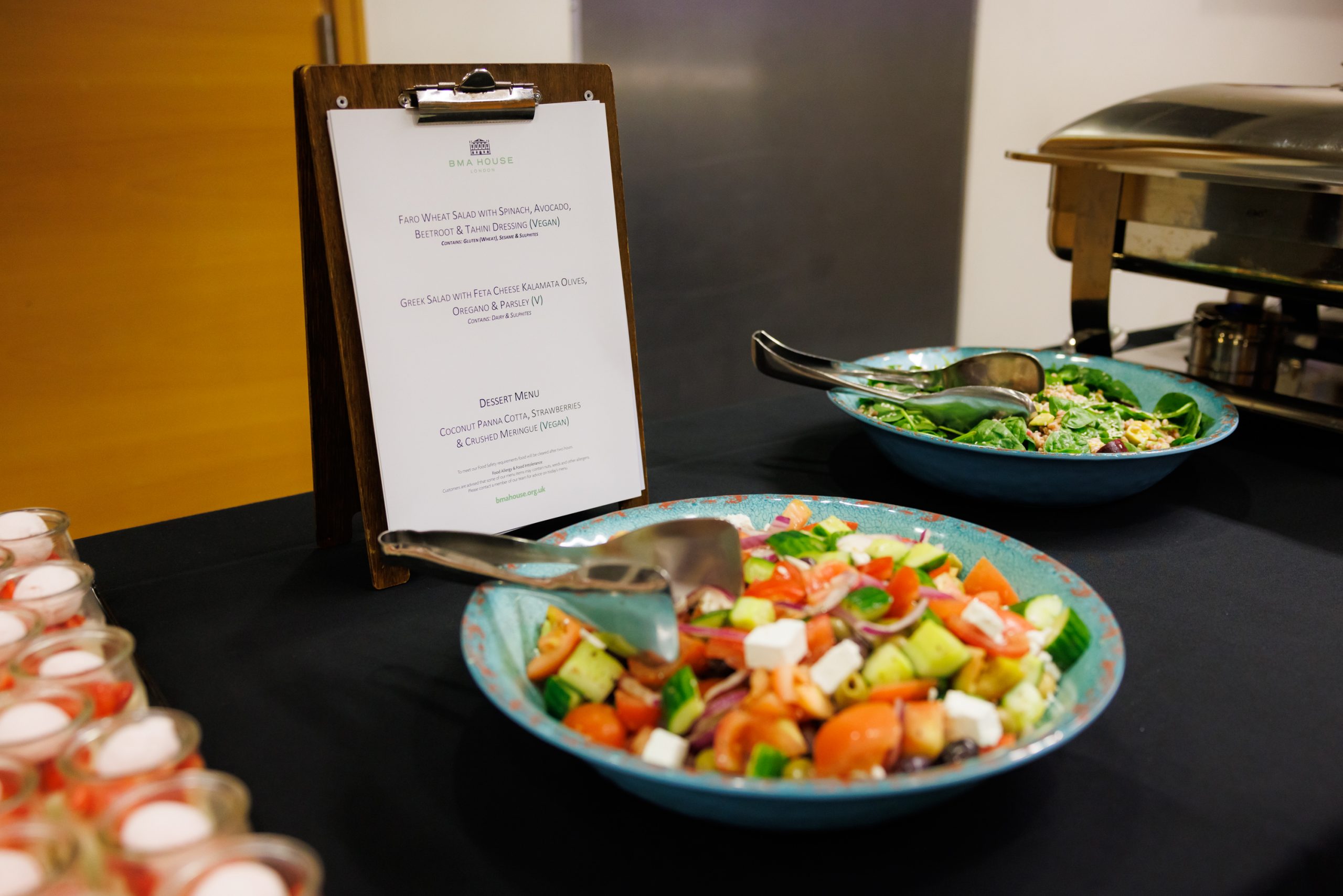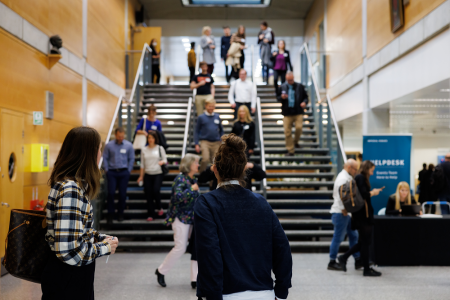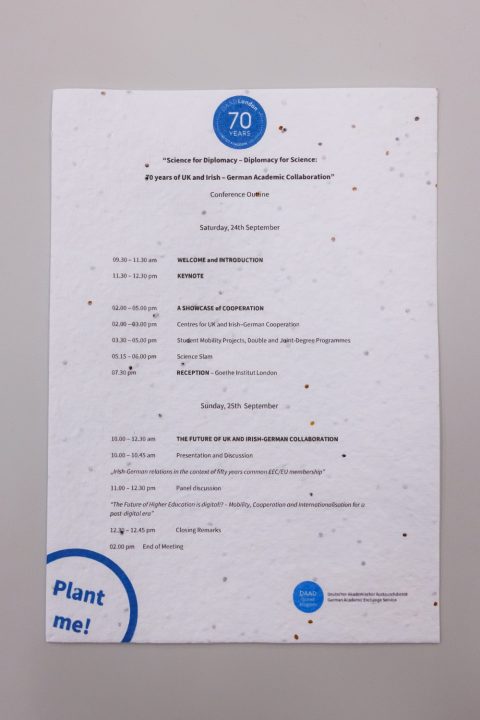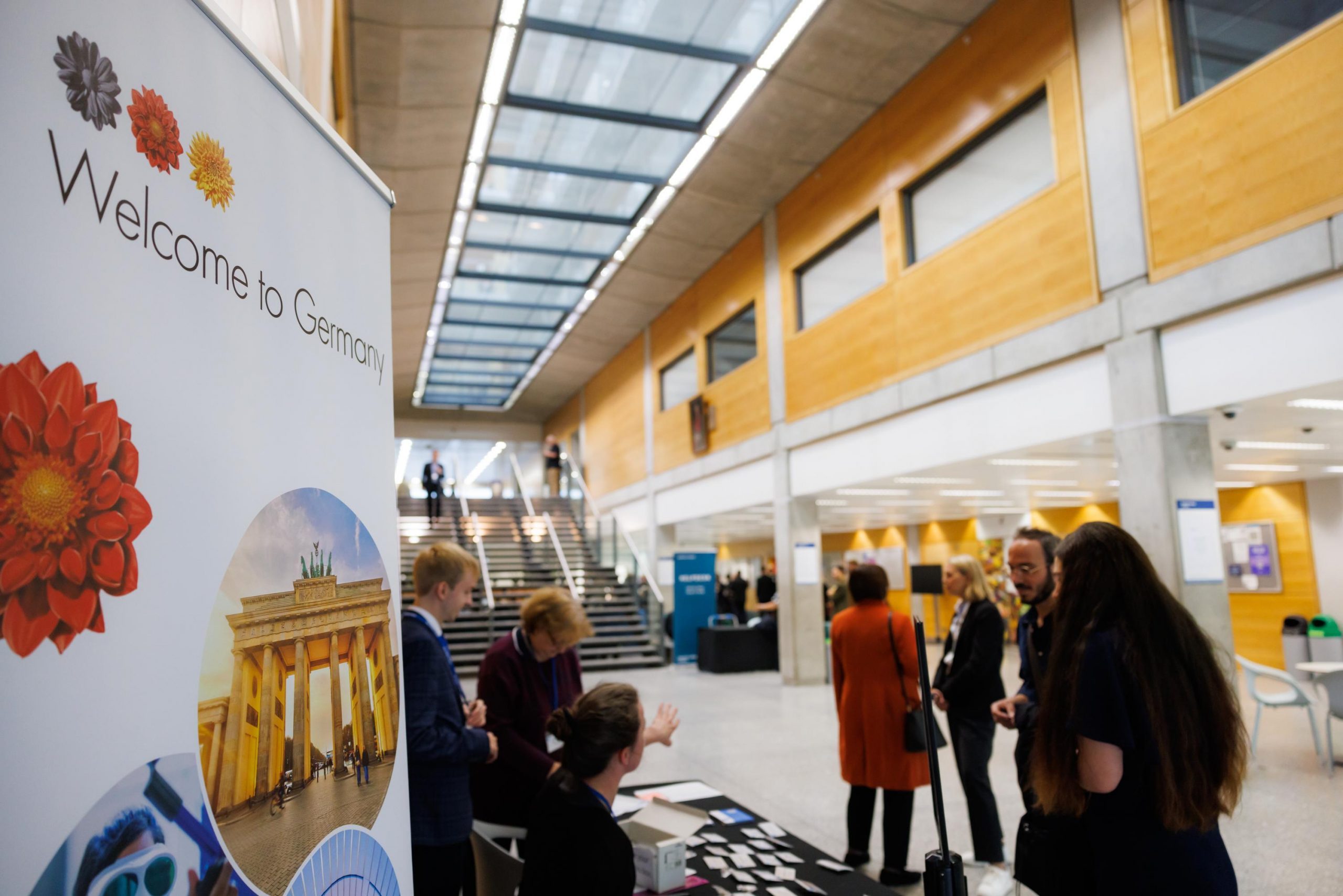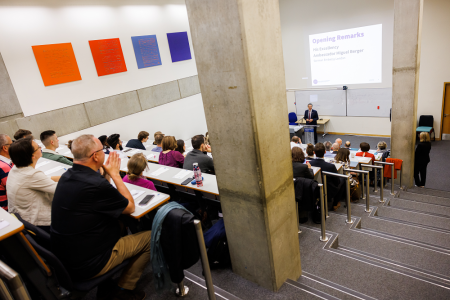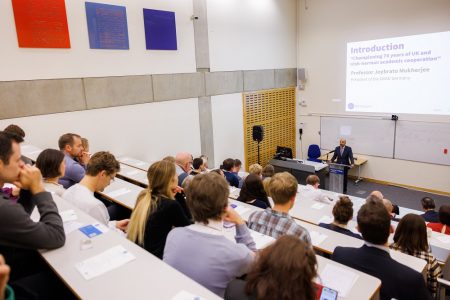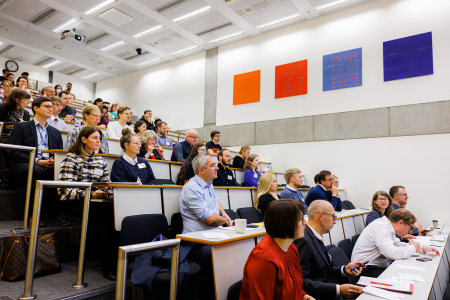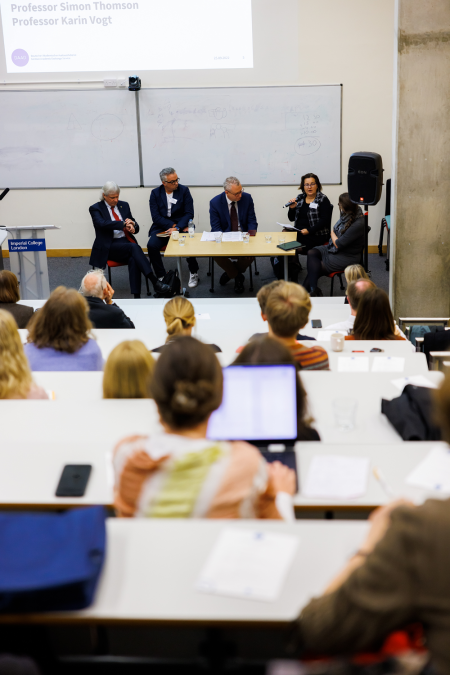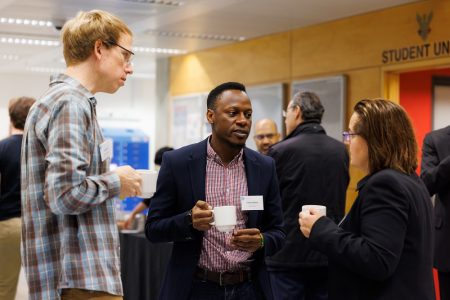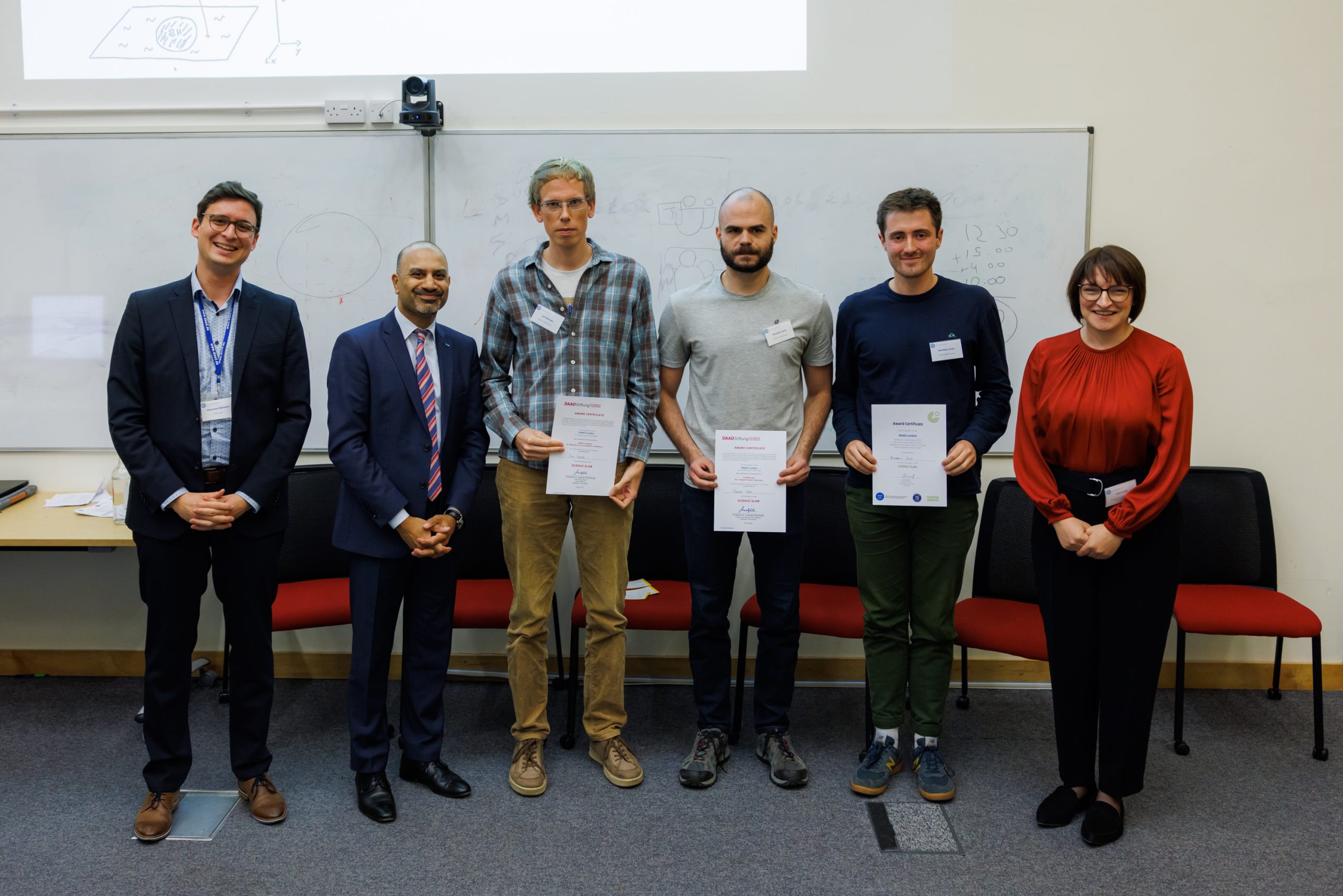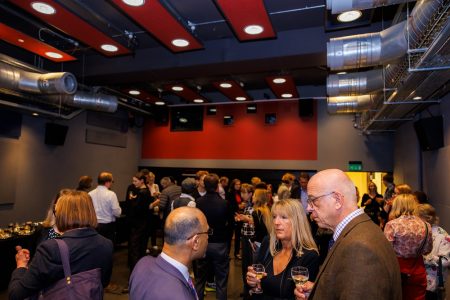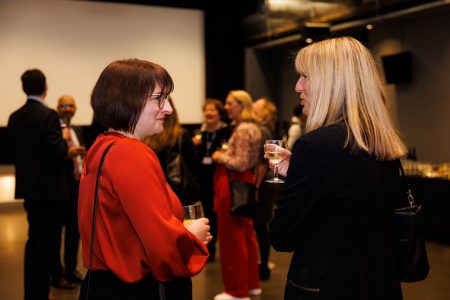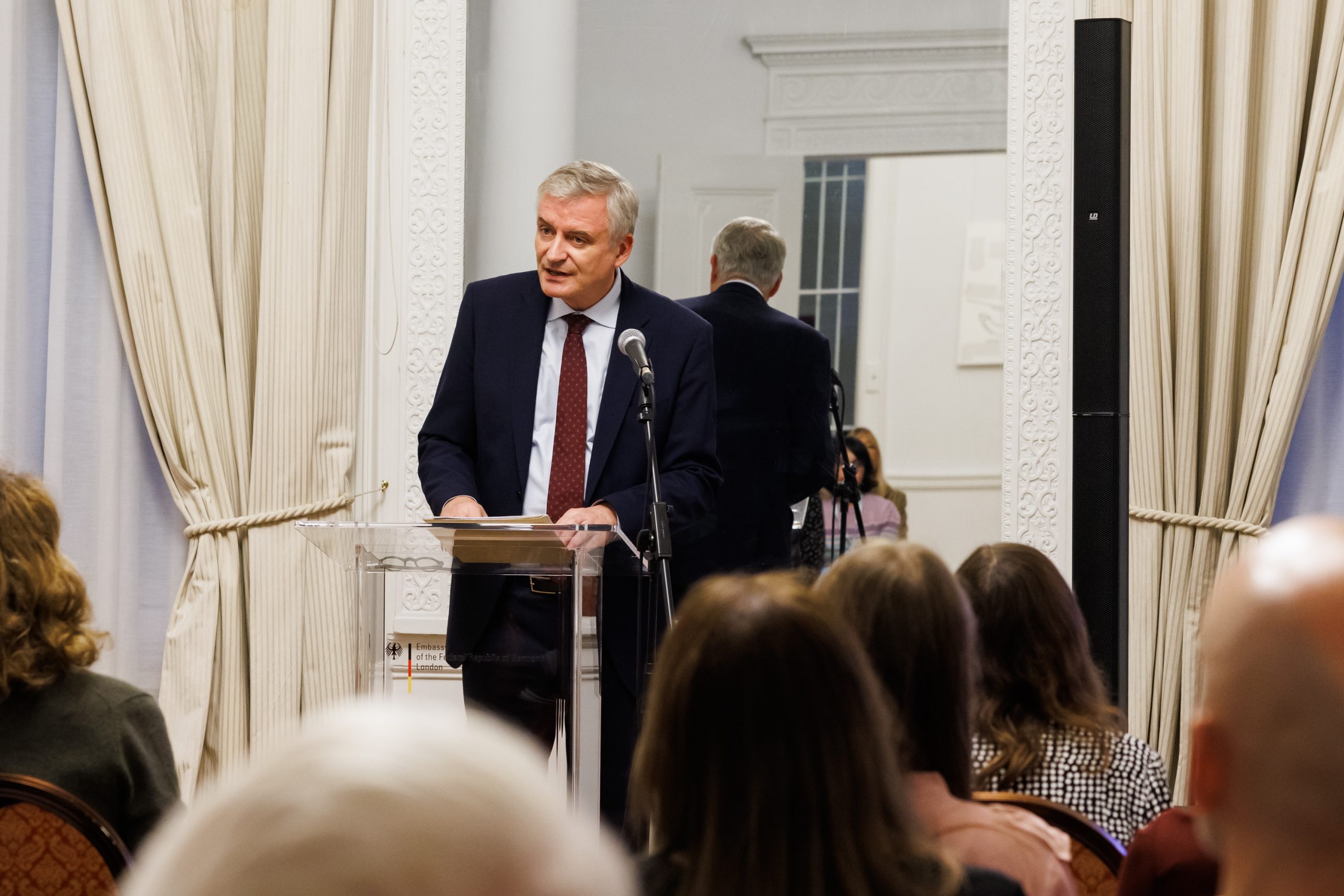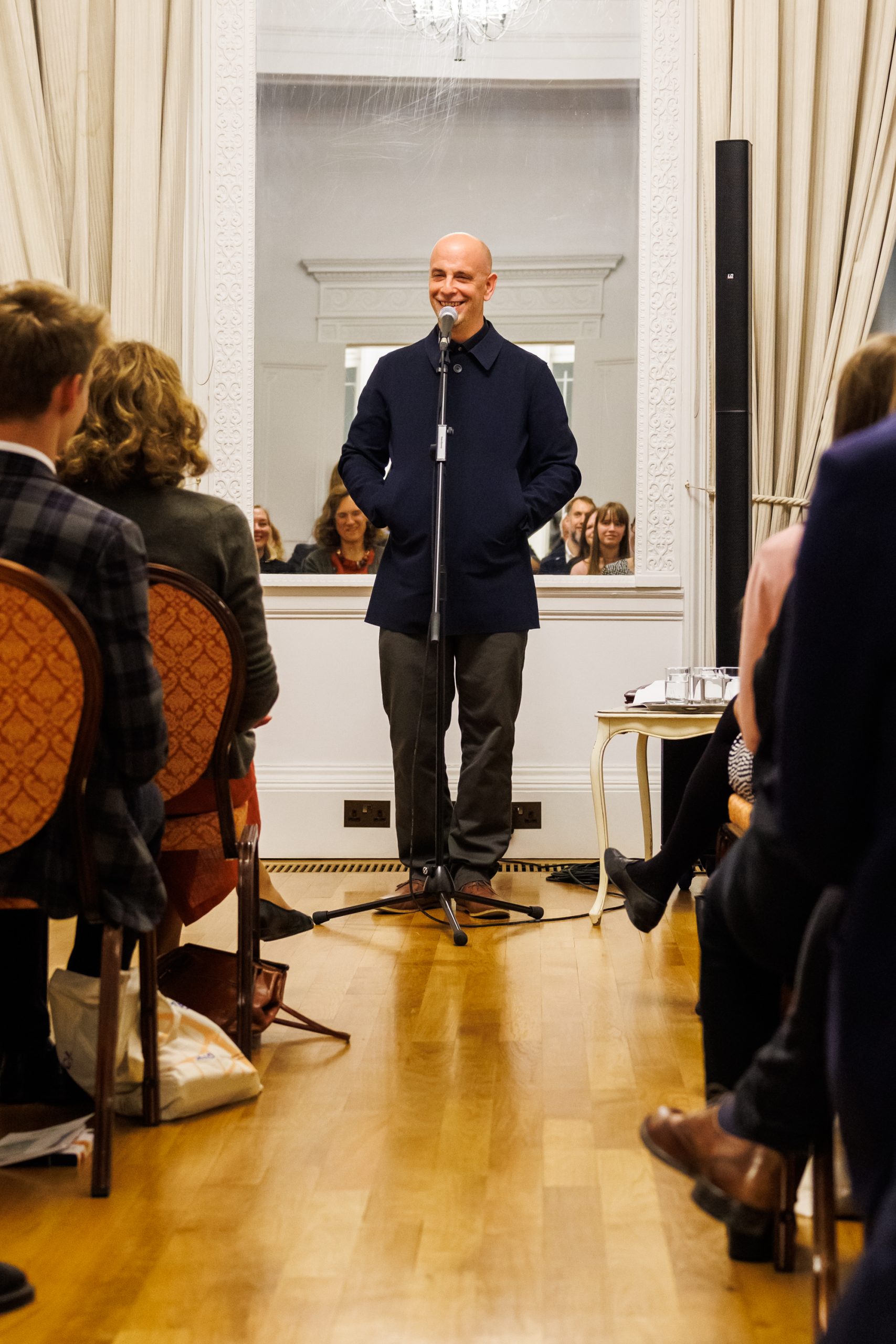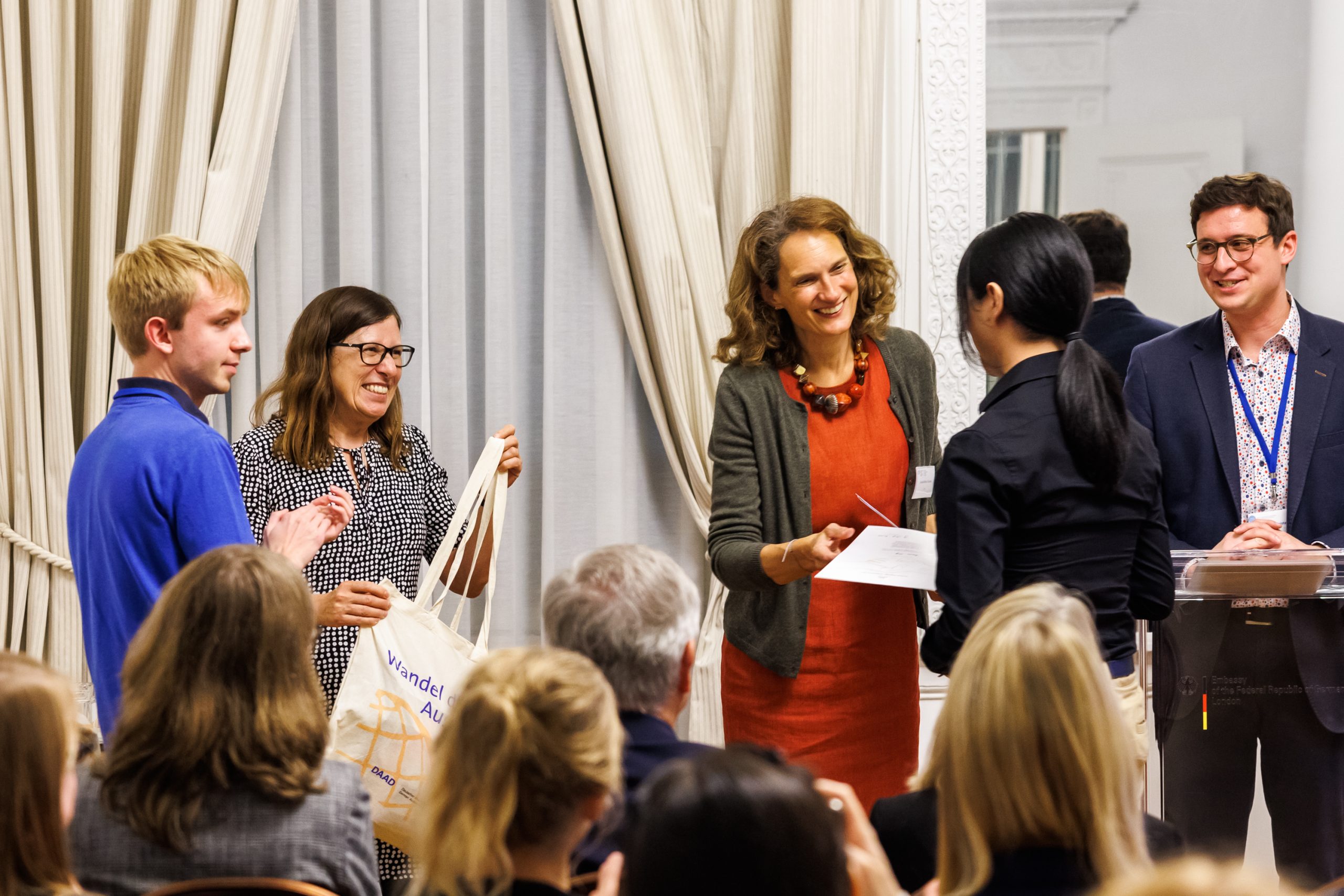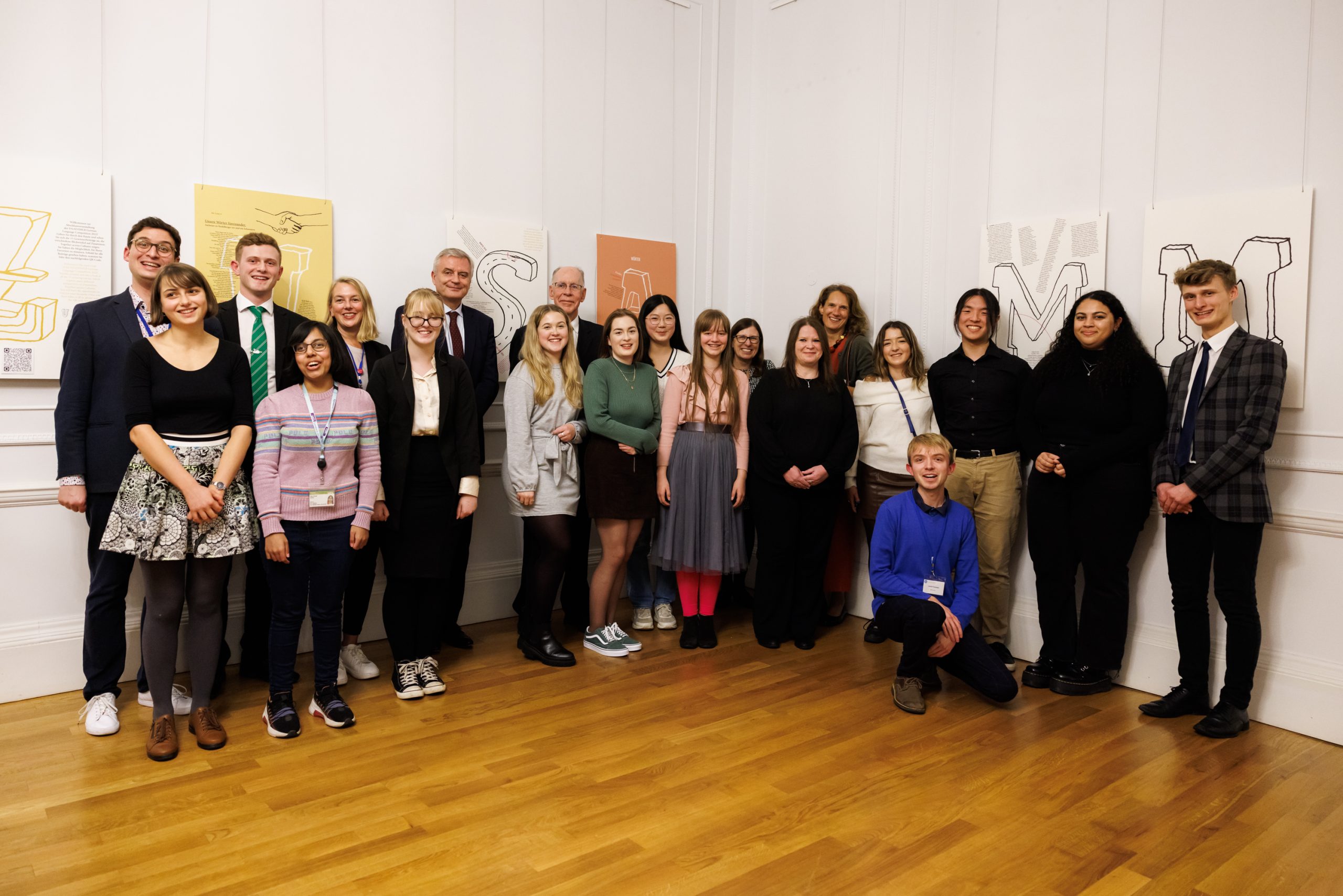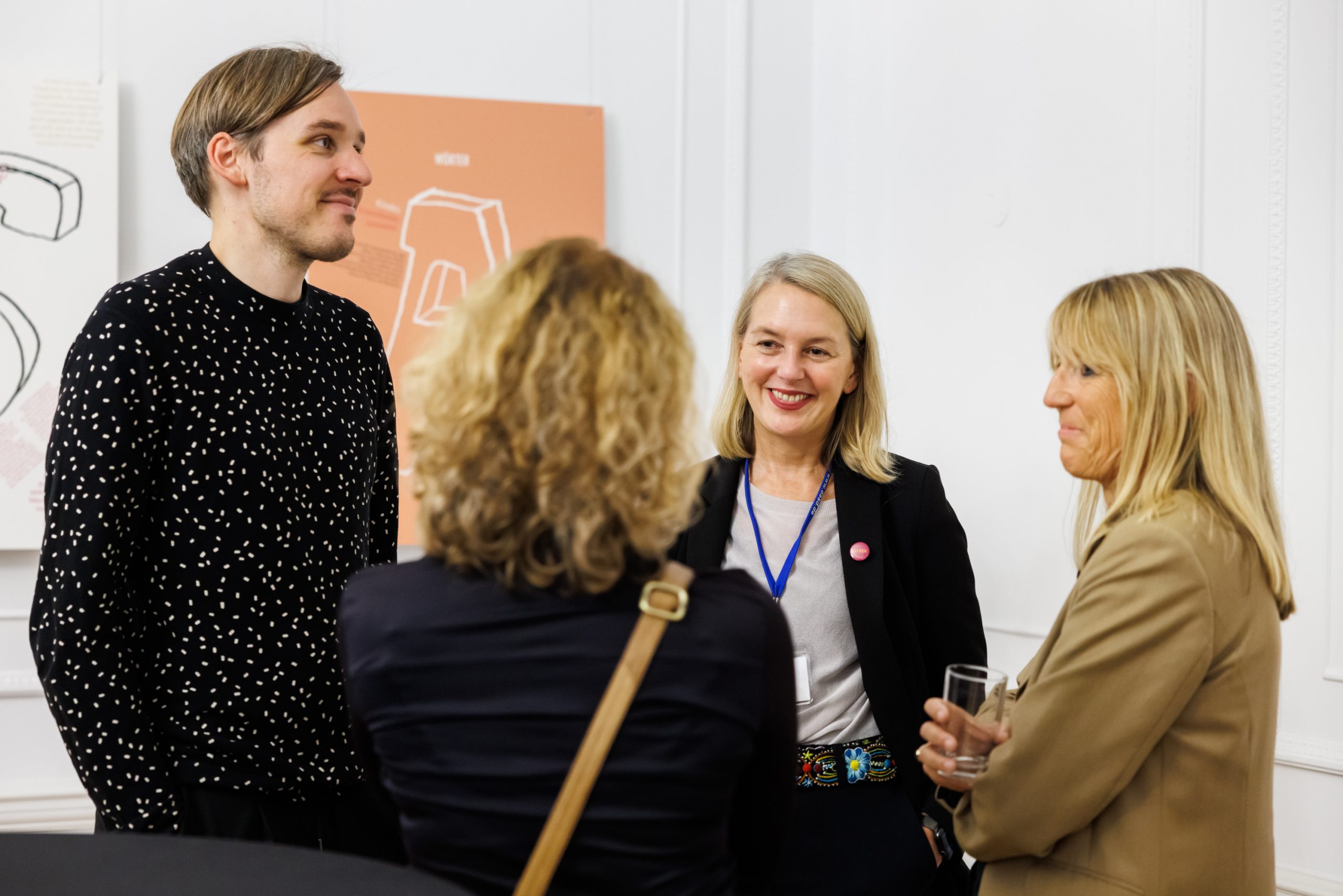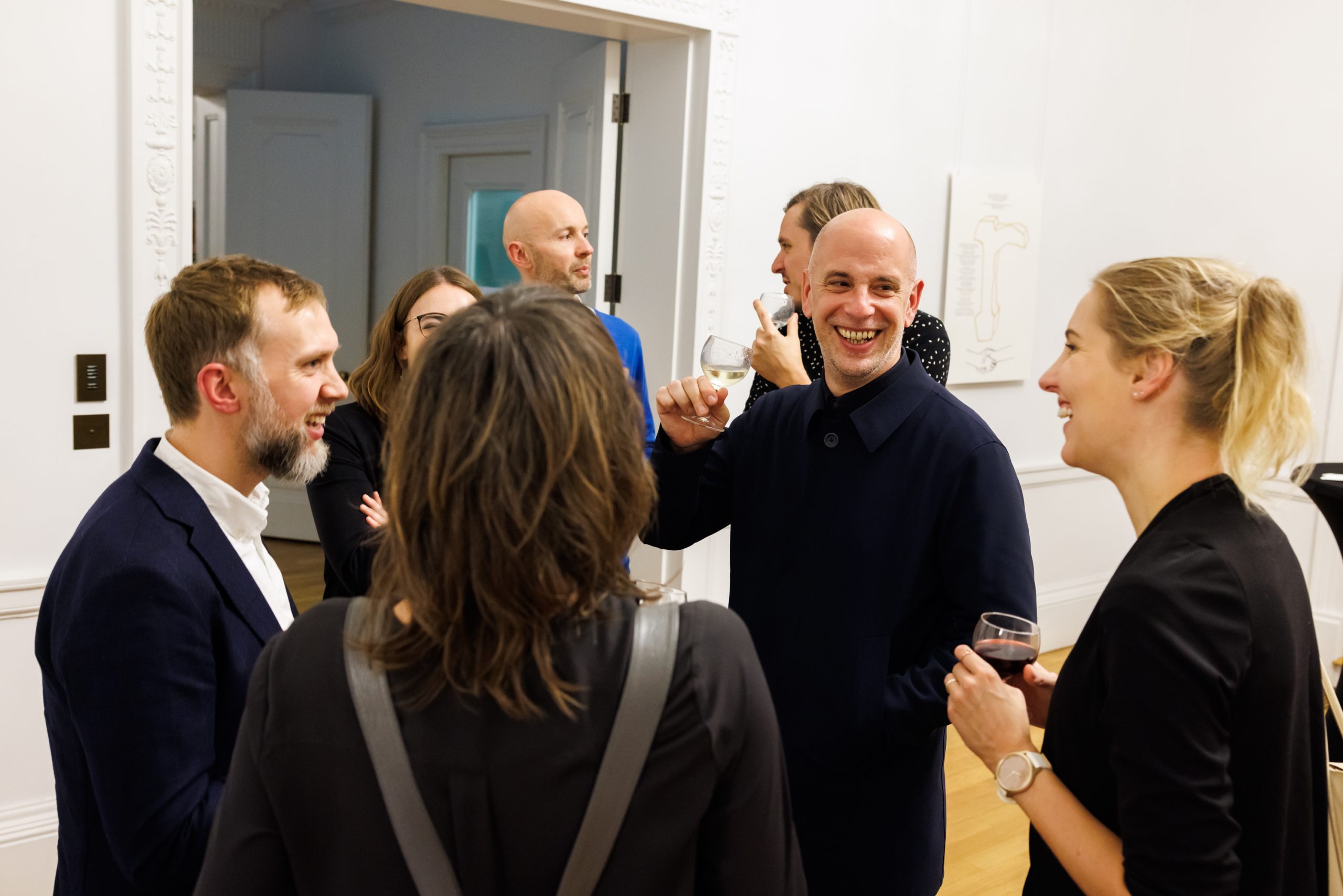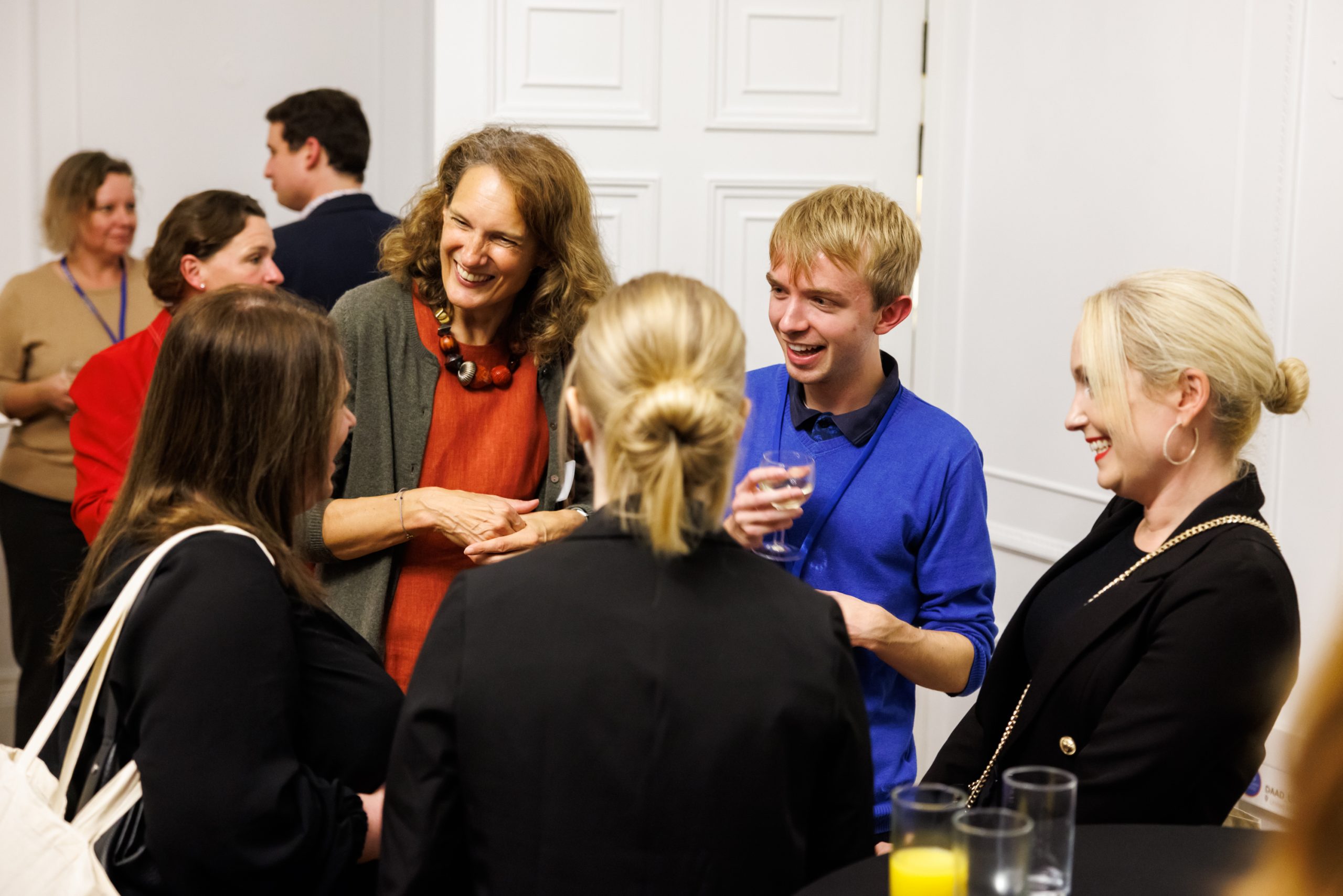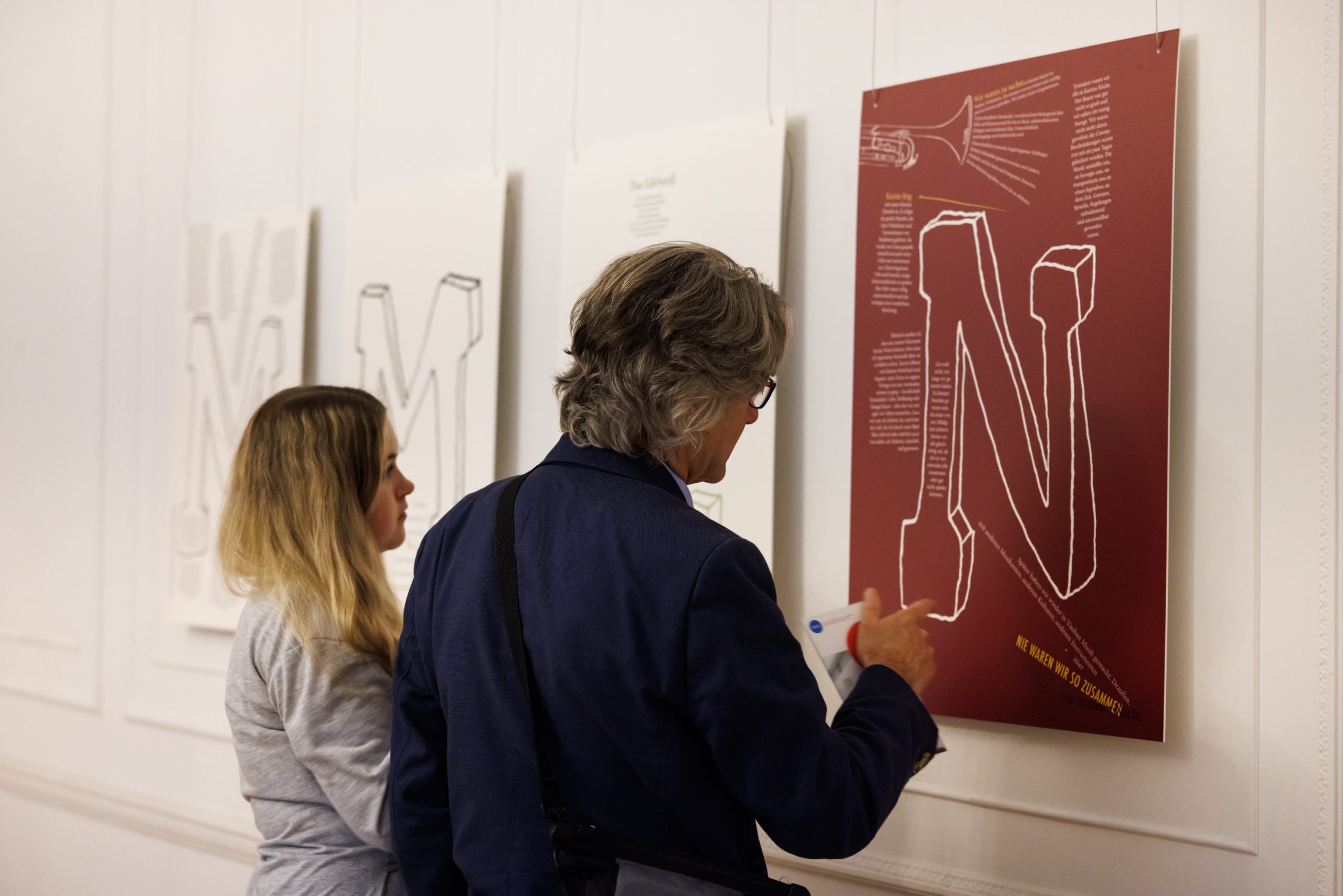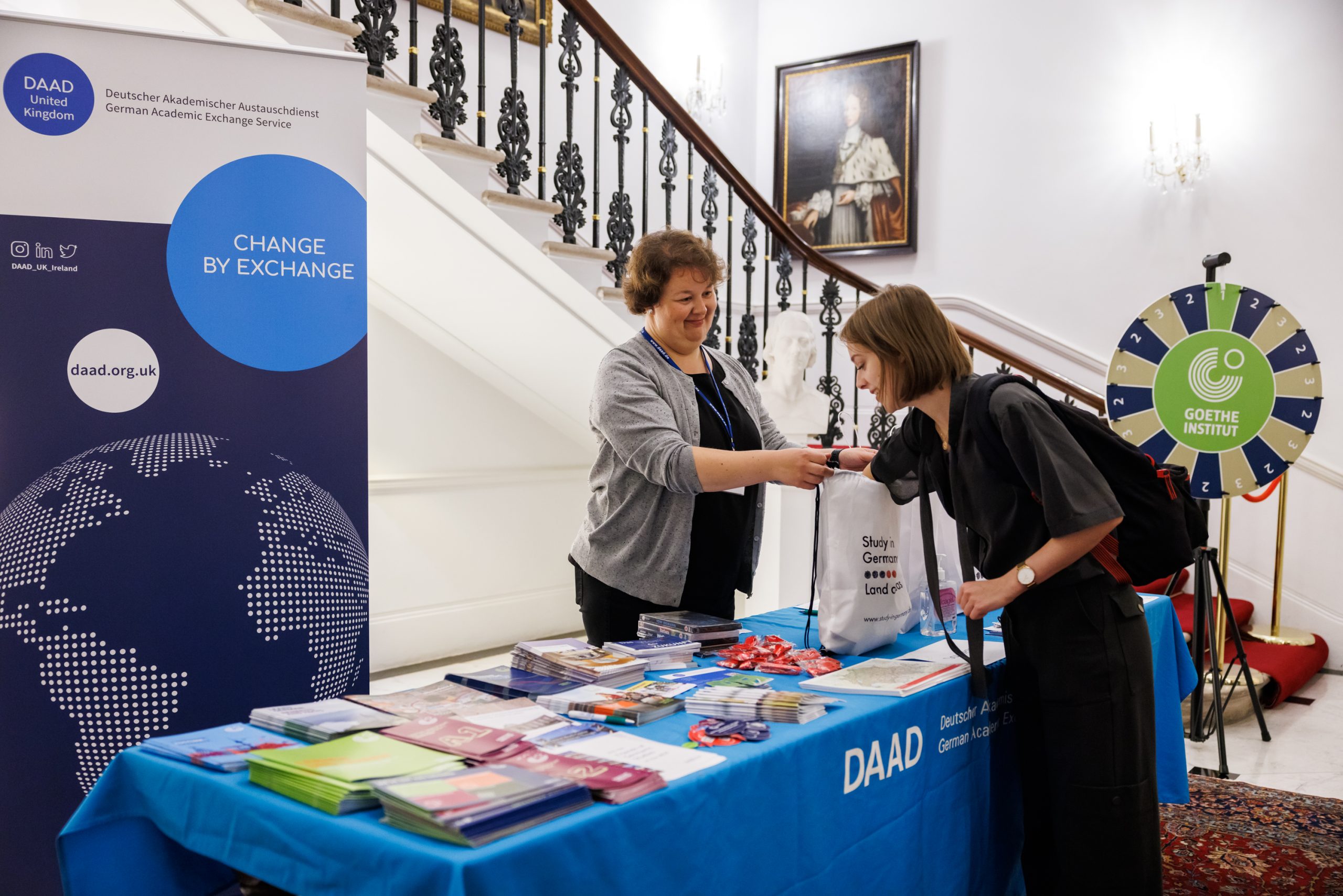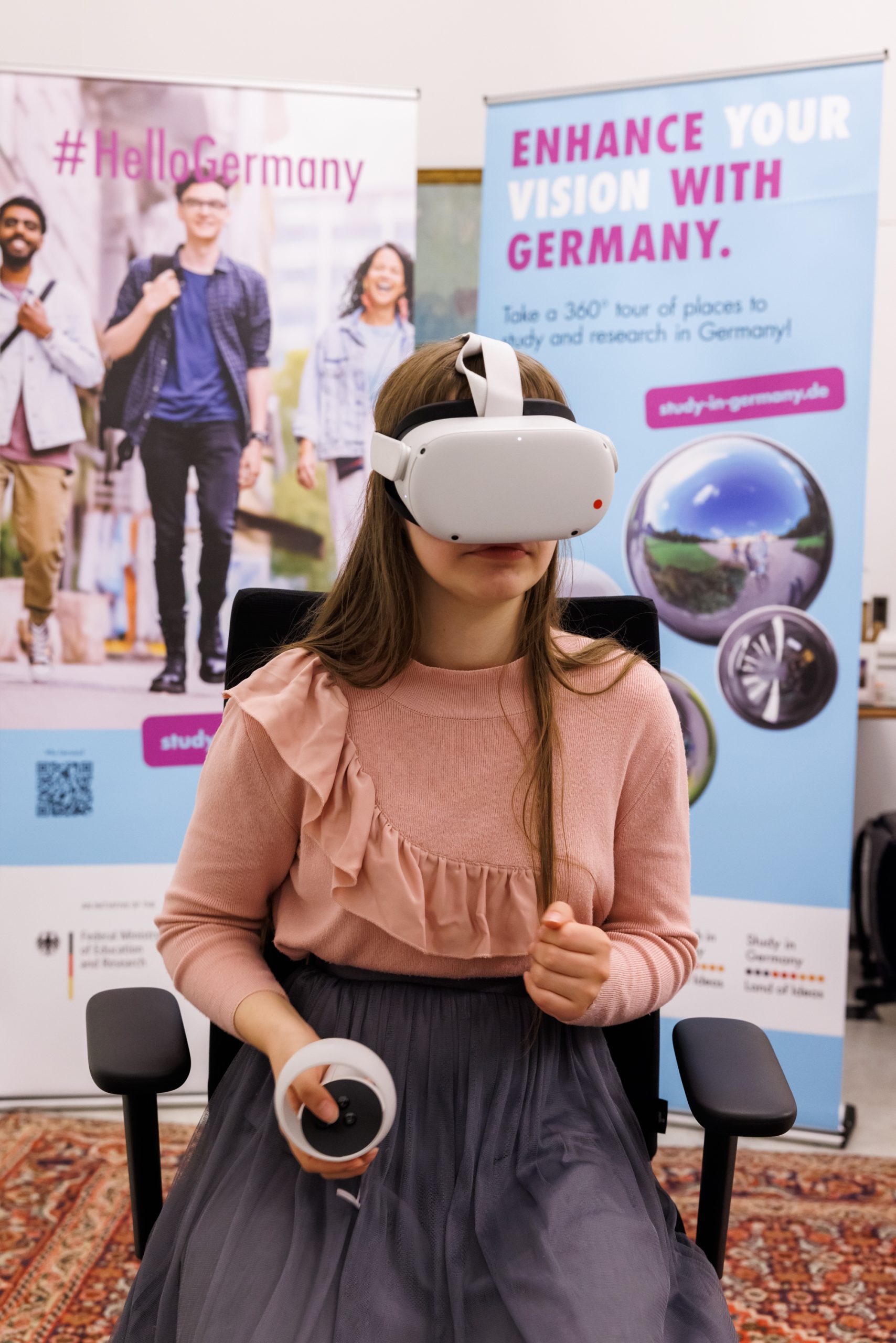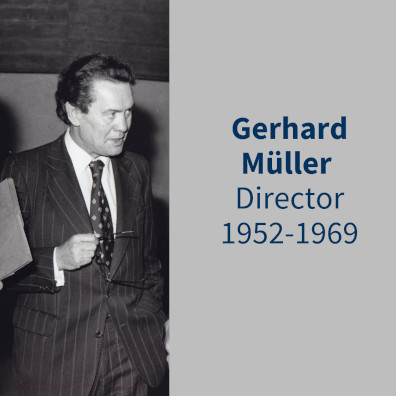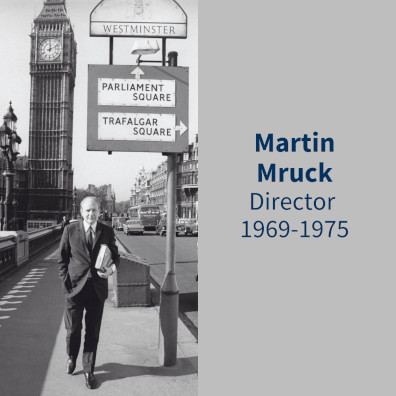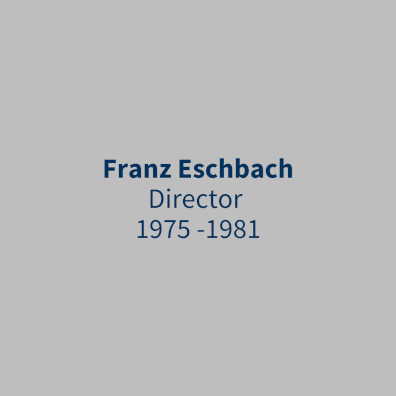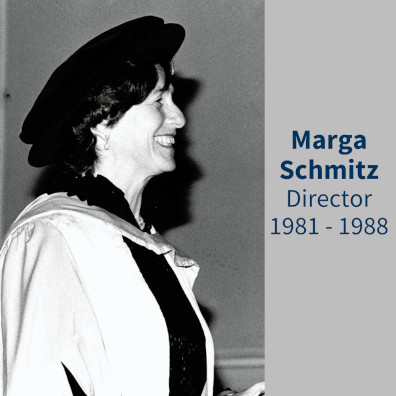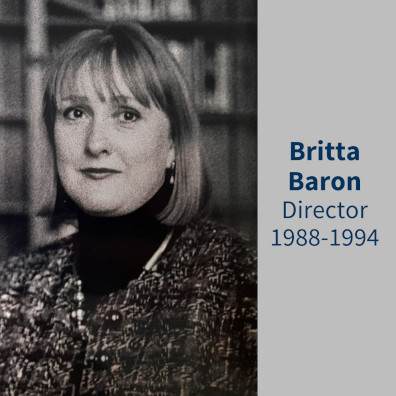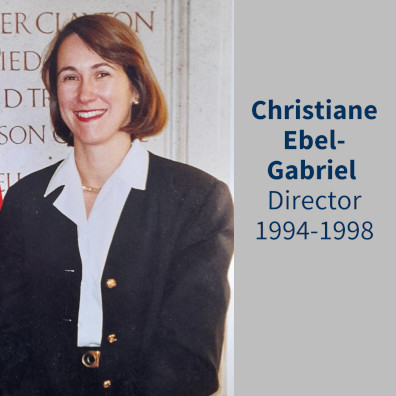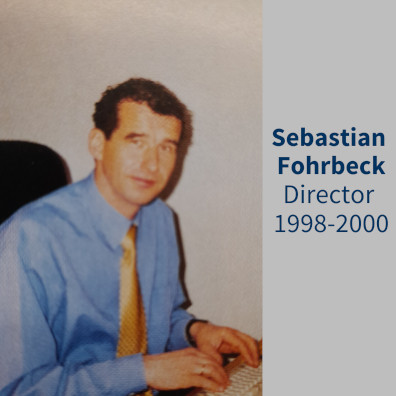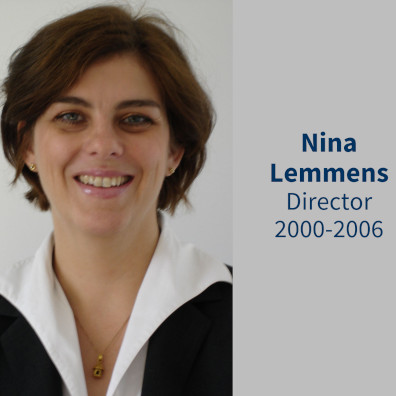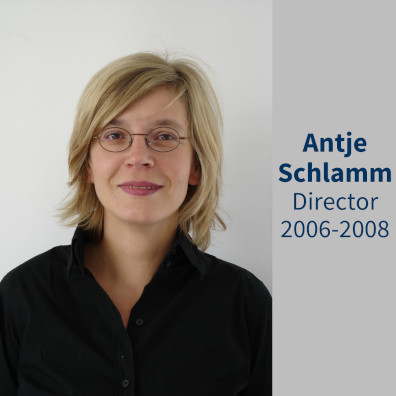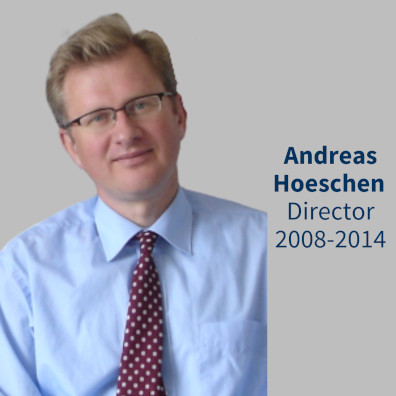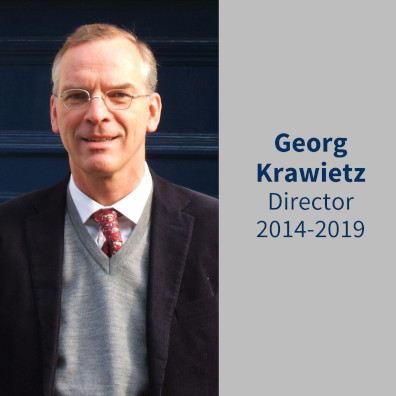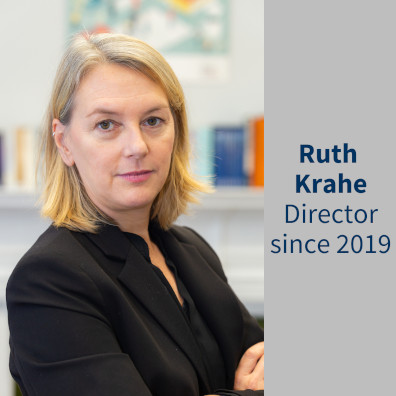- 70 years DAAD London: 1952-2022
- 1950s
- 1960s
- 1970s
- 1980s
- 1990s
- 2000s
- 2010s
- 2022
- DAAD London Directors
1950s
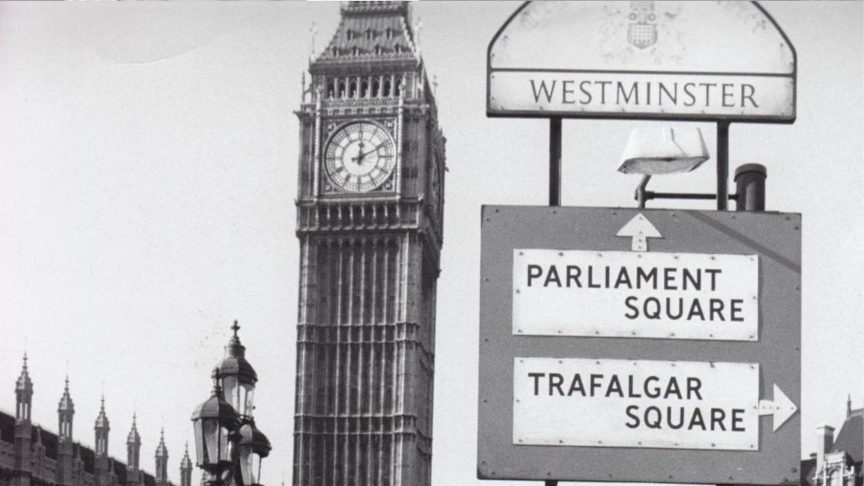
© M. Friedel
In 1952, the Geman Academic Exchange Service (DAAD), first founded in 1925 and re-established in 1950 opened its new regional office for the UK and Ireland in London.
Since then, the office has championed academic exchange between the UK/Ireland and Germany through a wide variety of scholarship und other funding programmes.
The Official Opening
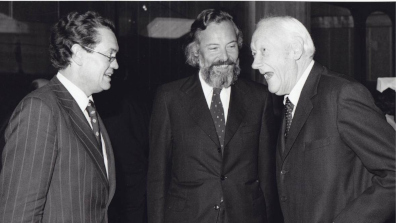
Sir Robert Birley (r) talking to former DAAD-President Professor Hansgerd Schulte (m) and DAAD London Director Dr Gerhard Mueller (l).© DAAD
On 7th May 1952 the DAAD office officially opened its doors at 43 Parliament Street, SW1. This had been made possible by the wholehearted support of British politicians and academics, particularly Sir Robert Birley. Only one year later diplomatic relations were officially established between the young Federal Republic of Germany and the UK. The first DAAD London office Director was Gerhard Mueller who was the longest serving director to date. His time in office stretched from 1952 to 1969.
The First DAAD Lektor
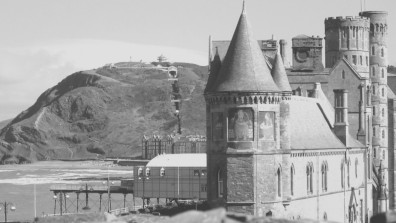
© DAAD/Herz
In 1952, the first DAAD Lektor was assigned to Aberystwyth University in Wales. This lecturer was the first of hundreds to take part in the programme, which focuses primarily on teaching German language and literature as well as contemporary German Studies at British and Irish universities.
It exists to this very day: Currently UK and Irish universities host 39 DAAD lecturers for German Studies.
The European Conference of Rectors
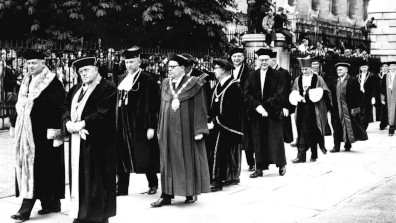
© Cambridge News
In 1954, a delegation from the European Conference of Rectors was hosted in Cambridge for an exchange of knowledge in an international context.
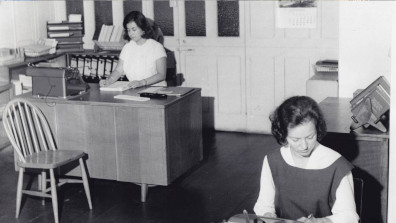
© Sound Stills
The visit of the West German delegation was prepared by the DAAD London office, consisting of director Mueller, his secretary and Dahlia Varley, a graduate of Girton College at Cambridge University.
The German Rectors’ Conference
The attendance of the West German delegation at the conference less than 10 years after the end of WWII allowed for closer academic relations between Germany, the UK and other European nations.
An important partner in this international collaboration process was and still is the Hochschulrektorenkonferenz (HRK) – the German Rectors’ Conference. The HRK represents the German universities and shapes and promotes dialogue within the higher education and research sector and its various networks.
The First State Visit by the German Head of State for fifty-one years: The Arrival of President Heuss in London
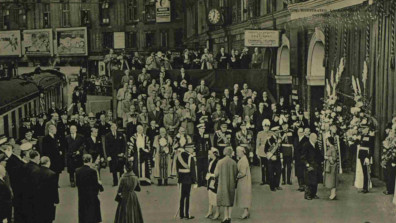
© Illustrated London News Group
President Heuss arrived by air at Gatwick Airport on 20 October 1958. He travelled by train to Victoria Station, where he was welcomed by the Queen, The Duke of Edinburgh, the Prime Minister, the Lord Mayor and members of the Royal family.
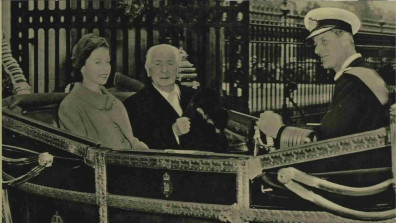
© Illustrated London News Group
Together with the Queen and the Duke of Edinburgh he drove in an open carriage to Buckingham Palace were he stayed during his visit.
The first official German state visit to the UK since 1907 took place between 20-23 October 1958. During his stay, the then President of the Federal Republic, Theodor Heuss, visited higher education institutions across the country, among them the University of Oxford. In 1959, the Theodor Heuss Scholarship was established at the University of Oxford enabling British students to study in the Federal Republic of Germany.
1960s
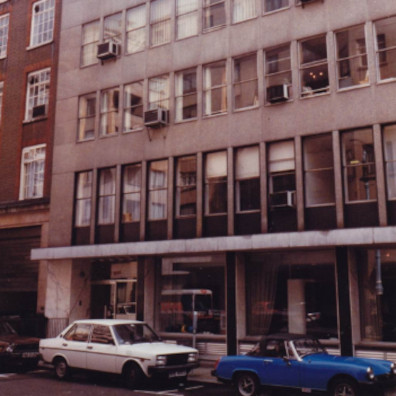
© DAAD
In the mid-1960s, the first relocation of the DAAD London office took place. The new address was 11-15 Arlington Street SW1, London.
The Michael Foster Memorial Scholarship
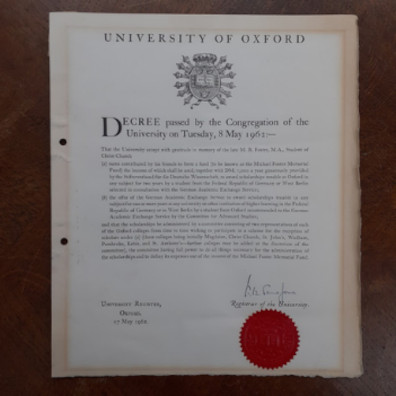
© DAAD
In 1962, the University of Oxford and the Stifterverband für die Deutsche Wissenschaft (Donors’ association for the promotion of humanities and sciences in Germany) launched the Michael Foster Memorial Scholarship. The scholarship was awarded to a West German national to study for two years at Oxford University and encourage Anglo-German cooperation.
Additionally, in 1963 another programme was set up for young lawyers. Together with the British Council and the British Institute of International and Comparative Law the programme allowed six British solicitors and barristers to go to Germany to bolster legal knowledge between the UK and Germany.
The Artists in Berlin Programme
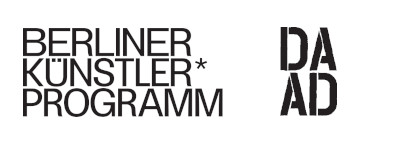
© DAAD
In 1966, the Artists in Berlin programme (BKP) was launched. With this programme international artists were sponsored with a residency in Berlin to facilitate and support creative processes, encounters and collaborations. Awards cover a variety of artistic categories such as: Film, Music, Literature and Visual Arts. Over the years 78 British and 9 Irish nationals have received the BKP Award including Damien Hirst (1994), Hugo Hamilton (2001), Steve McQueen (1999) and Jane and Louise Wilson (1996).
Find out more about the fellows and the Berliner Kuenstlerprogramm at www.berliner-kuenstlerprogramm.de.
German Studies in Great Britain and Ireland
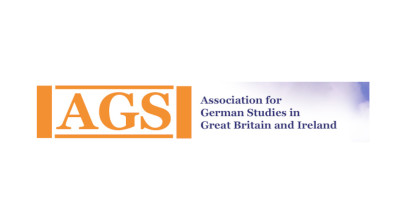
© AGS
During the 1960s, teaching of modern foreign languages at British universities was of growing importance. In 1965, the first workshop of British Germanists including DAAD lecturers took place. A year later, a conference on German Studies is held due to the introduction of new language-related courses at polytechnics in the UK. Today, the Association for German Studies in Great Britain and Ireland (AGS) is the biggest professional association for university-level German and seeks to support, foster, and increase the visibility and vitality of German Studies in Great Britain and Ireland. Its predecessor is the Conference of University Teachers of German (CUTG) in Great Britain and Ireland which was founded in 1932.
The New Director
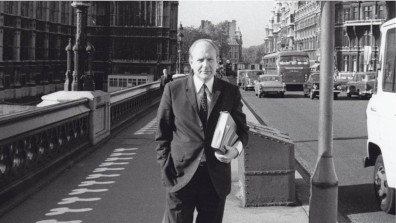
© DAAD
In 1969 Gerhard Mueller leaves the DAAD London office and new director becomes Martin Mruck.
1970s
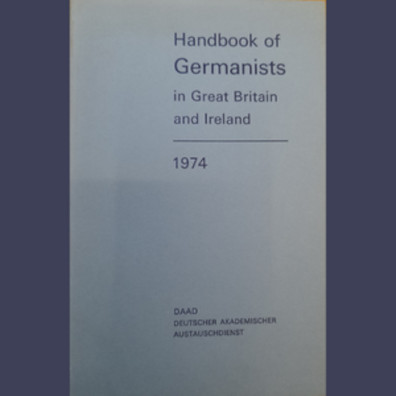
© DAAD
In 1974, the first edition of the Handbook of Germanists in British and German universities was published in collaboration with the Institute of Germanic Studies. It was revised in 1976, 1984 and 1988 in collaboration with the conference of University Teachers of German in Great Britain and Ireland (CUTG) and the Standing Conference of Heads of Modern Languages in Polytechnics and other Colleges. The handbook contains information about academics working in German Studies including their contact details and their research areas. It was referred to as the DAAD-Bible.
The International Association for the Study of German Politics
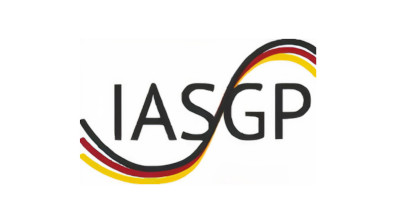
© IASGP
The Association for the Study of German Politics (ASGP) was established in 1974 to promote the study and teaching of German politics in the widest possible context within the United Kingdom and further afield. The organisation has been renamed and is now called the International Association for the Study of German Politics (IASGP). The DAAD supported the organisation with funding for their annual meetings and has been co-sponsoring trips for a group of members to observe the Federal Elections in Germany. Here you find pictures from the last election trip in September 2021.
In 1977, the DAAD London office celebrated its 25th anniversary after the re-opening in 1952 at the University of London. A gathering of DAAD Lecturers and a celebratory publication 25 years DAAD London [PDF 508.38 KB] commemorated this anniversary.
1980s
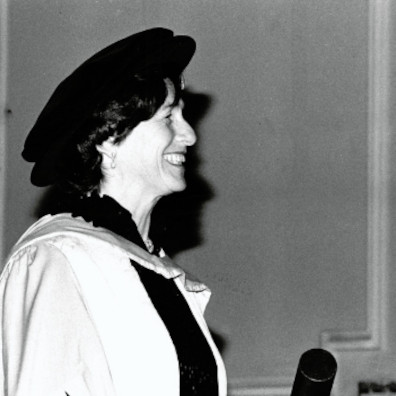
© DAAD
Marga E. Schmitz follows Franz Eschenbach and becomes the first female director of the DAAD office London in 1981.
The New Office
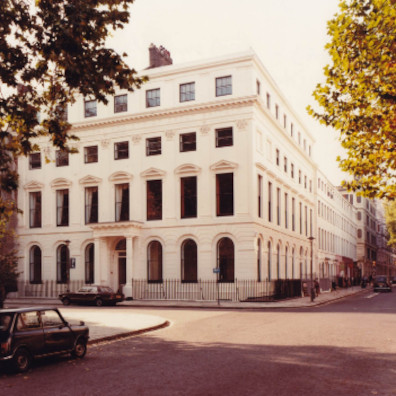
© DAAD
In 1982, the office is relocated to 17 Bloomsbury Square with an official opening ceremony conducted by representatives of higher education institutions and the government.
Centre Stage Deutsch
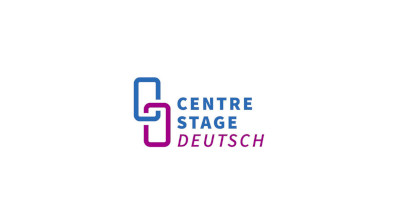
© DAAD
In 1983, the DAAD takes over the sponsorship of the Writer in Residence programme at the University of Warwick which is later opened for all universities in the UK and Ireland. The programme exists until today, now named Centre Stage Deutsch. Among those sponsored since then are Max Czollek, Felicitas Hoppe, Dalibor Markovic, Emine Sevgi Özdamar, Mithu Sanyal, Torsten Schulz, Yoko Tawada, Jan Wagner, Feridun Zaimoğlu and many more.
Visit of the German President
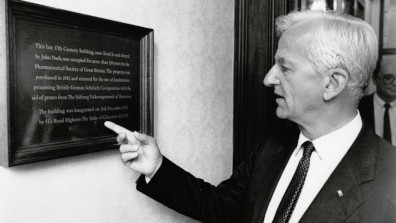
© DAAD
In 1986, President Richard von Weizsäcker visits the DAAD London office during his state visit to the UK.
The Kurt Hahn Scholarship
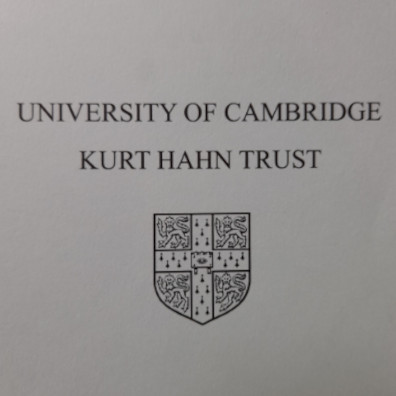
© DAAD
The Duke of Edinburgh Award, a scheme in which a large number of British students in secondary schools take part, is one of Prince Philip’s biggest legacies. The programme involves volunteering in the community, developing a skill and a final big expedition. Did you know that the inspiration for the award came from his mentor and former headmaster in Gordonstoun, the German teacher Kurt Hahn? Because of his Jewish roots, he had to flee Germany in 1933. He settled in Scotland and set up the British Salem School which became known as Gordonstoun.
The DAAD and the University of Cambridge set up the Kurt Hahn Scholarship in 1988, which seeks to foster Anglo-German understanding by providing sponsorship to students from Cambridge to go to Germany and vice versa.
Women in German Studies
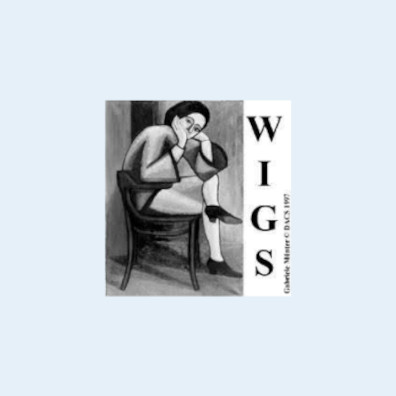
© WIGS
In 1988 Helen Watanabe-O’Kelly founded Women in German Studies (WIGS) with the aim of bringing together female Germanists in Great Britain and Ireland and supporting them in all aspects of their professional life. An annual conference is organised in November, each year at a different university.
The New DAAD London Director
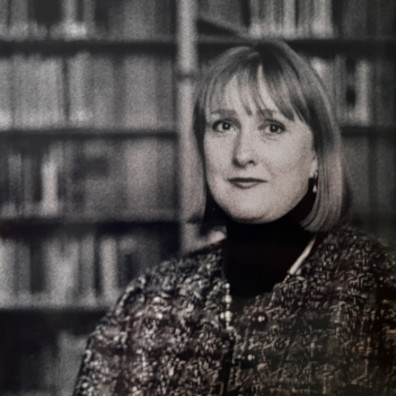
© Lemke
In 1988 Britta Baron is seconded from the DAAD Bonn to become the new DAAD London office director.
“On November 1989, we had organized a meeting of the academic tutors for the Anglistenprogramm which brought together English Studies scholars from all over the UK and Ireland, The wall is open, sent shock waves through that meeting. Irmtraud Detmers jumped to her phone to talk to friends and family in Berlin. The next morning, a Trabi cruised around Bloomsbury Square in joyous circles.” she remembers.
Another highlight for the DAAD Office in London was the establishment of the Centre for German and European Studies based at Birmingham University.Britta Baron
“And the annual Meetings of all DAAD Lektors in the UK and Ireland – at the time their total number was around 80 – that took place in the Cumberland Lodge in Windsor Great Park live on in many memories as inspiring and productive events. Marga E. Schmitz, my predecessor and generous mentor, had made these meetings possible. Happy memories also come from the annual parties for all Lektors on my roof terrace in Aubrey Lodge, overlooking Holland Park.”
1990s
1994 – 1995
The DAAD London Office Expands
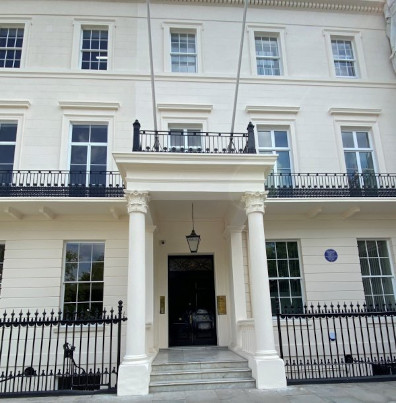
© DAAD
The DAAD London office moves from Bloomsbury Square into larger premises in 34 Belgrave Square in 1996.
The Centre for Irish-German Studies
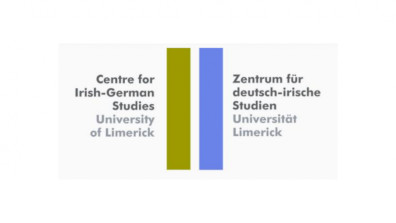
© Centre for Irish-German Studies
In September 1997, the Centre for Irish-German Studies at Limerick University was founded. The Centre supports research dealing with all aspects on Irish-German relations. Prof. Gisela Holfter, Associate Professor in German and Director of the Centre for Irish-German Studies, has been awarded the Bundesverdienstkreuz (Order of Merit of the Federal Republic of Germany) in summer 2021 for her long-standing and impactful work in Irish-German relations.
The New Director
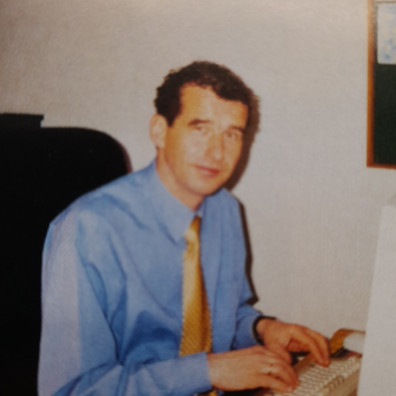
© DAAD
Sebastian Fohrbeck follows Christine Ebel-Gabriel as DAAD London director.
DAAD Alumni-Meeting
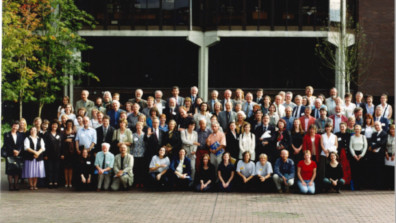
© Centre for Irish-German Studies
In 1999, the DAAD London office organised a DAAD Alumni-Meeting in Limerick, Ireland from 2.-4. September.
2000s
In the academic year 2000/2001 the first DAAD sponsored Language Assistants arrives in the UK. They took up their positions at South Bank University, Aston University and West of England University. Over the past years the programme has grown successfully and has given many German graduates the opportunity to dip their toes into the British and Irish university system and enabled them to develop their profiles as teachers of German as a foreign language.
The New Director Nina Lemmens
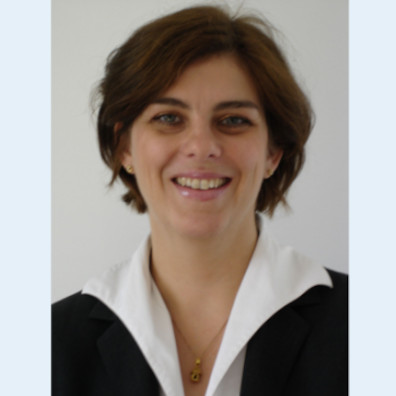
© DAAD
Nina Lemmens takes over from Sebastian Fohrbeck as DAAD London director.
‘In the early years of the new millennium, language learning was under a lot of pressure in British schools and universities. We tried to tackle the dwindling numbers with various campaigns and projects that somehow counteracted one of the most beloved stereotypes there are in Britain about Germans’, she remembers.
Namely, that we have no sense of humour, and even less capability of self-mockery. Hence, the campaigns presented on this website were born, and they worked quite well.Nina Lemmens
‘For me personally, my six years in London were the best years of my life.’
Learn German
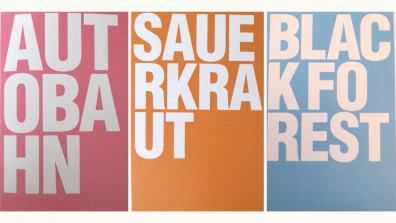
© DAAD
Selbstironie als Marketingkonzept – Learn German campaign 2001: A working group of delegates from the Heads of German Meeting is set up which consequently organises a very successful advertising campaign ‘Learn German’ for schools and universities. The project is jointly financed by the DAAD and others.
The Sauerkraut Cup
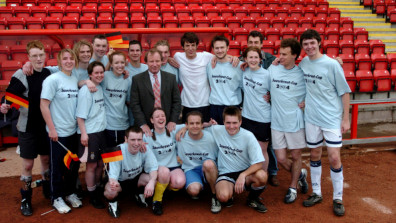
© DAAD/Schlamm
In 2004, the first Sauerkraut Cup took place in Glasgow. Guest of honour was Berti Vogts, former German world champion and manager of the Scottish national football team. In the end, it was the Edinburgh team which won the Cup. Since then, this very special German football match has been taking place nearly every year and brings many German language students from different British and Irish universities together to participate in a not so ordinary language competition.
German Language Competition
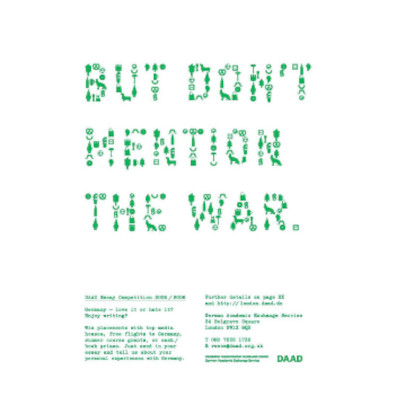
© DAAD
But Don’t Mention the War was the title of the first German Language Competition of the DAAD London office. Since then, the DAAD London has organised many more, mostly in cooperation with the IMLR (Institute of Modern Language Research. An overview can be found here.
The New DAAD London Director Antje Schlamm
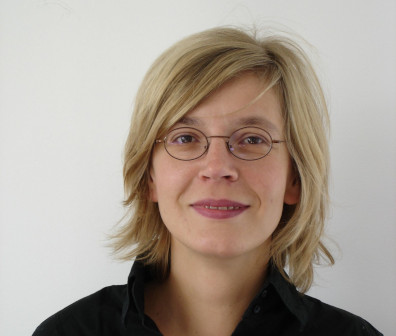
© DAAD
Antje Schlamm follows Nina Lemmens as DAAD London director.
DAAD Funding Guide
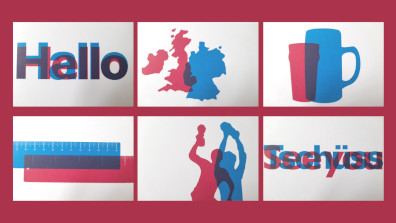
© brighten the corners
Each year, the DAAD London publishes the DAAD Funding Guide which contains all scholarship opportunities for the next academic year. Find here the cover of the version 2005/06 and the current one here.
The DAAD London Director Andreas Hoeschen
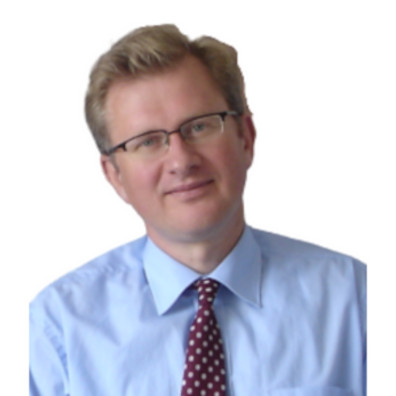
© DAAD
Andreas Hoeschen takes over from Antje Schlamm as DAAD London director.
“When I was director of the DAAD London Office I learnt a lot from all the inspiring people I had the unique opportunity to meet during my tenure of the post: UK academics, students and London colleagues, people from all walks of life with different backgrounds and approaches.” he remembers.
One highlight was the Conference Britain's Academic Relationship with the Continent in Challenging Times at the Royal Geographical Society which we organised jointly with the Higher Education Academy and the French Embassy in 2012.Andreas Hoeschen
“More than 200 friends and partners of the DAAD showed up at the event and made a strong case for preserving and further developing the longstanding relationship.”
2010s
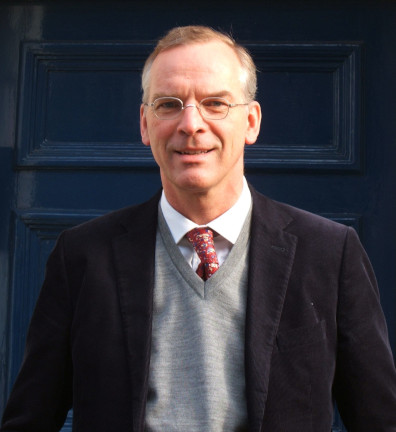
© DAAD
In 2014, Andreas Hoeschen leaves the DAAD London office and Georg Krawietz takes over.
“I have been director from 2014 through 2019. During these five years I have met many people, highly engaged at various institutions to keep academic exchange and related activities between the UK, Ireland and Germany running. Asked to mention three highlights which come to my mind, I am thinking of preparatory steps and kick-off of the DAAD University of Cambridge German Research Hub in 2015/16, the annual German language competitions, organized in co-operation with the Institute of Modern Languages Research (IMLR), among others, and having had the opprtunity to accompany and support the vivid life of the Centre for Irish-German Studies (CIGS) at Limerick University.” he remembers.
In particular I do remember its 17th International Conference in Irish-German Studies / Irish-German Relations, Between Böll and Brexit, in September 2017.Georg Krawietz
DAAD Cambridge Research Hub for German Studies
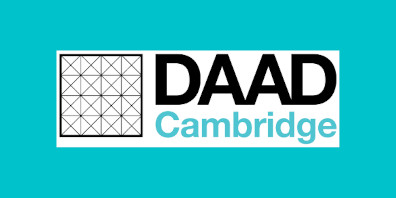
© Cambridge Hub
In 2016, the DAAD and Cambridge University have founded the DAAD Cambridge Research Hub for German Studies to foster a deeper understanding of Germany and its role within Europe and to create a German-focused interface between the University and governmental bodies, in the UK and Germany.
Kurt Hahn Celebratory Dinner
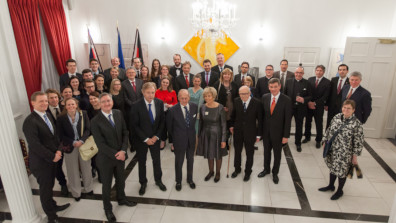
© German Embassy London
In 2016, the German Embassy London organised a Kurt Hahn Celebratory Dinner to commemorate 30 years of the Kurt Hahn Trust. The pictures show HRH Prince Philip with former German Ambassador Peter Ammon.
Humans of Europe – Europe for Humans
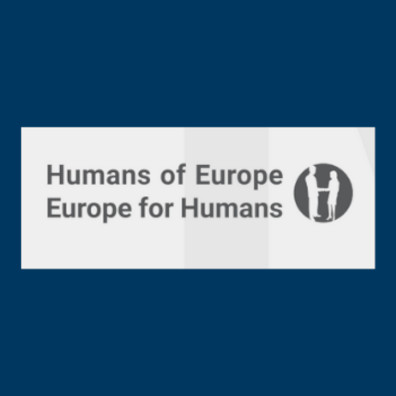
© DAAD
In 2017, the DAAD London launched the project Humans of Europe – Europe for Humans, a UK-wide campaign to highlight some of the thoughts and feelings of everyday citizens on Europe. But how could these thoughts be conveyed in an intuitive and powerful way? We decided to take to the streets and have an open discourse with people from all over the UK – mostly from Brighton, Bristol, Glasgow and London – from all walks of life and share the results through social media and in this booklet [PDF 2.66 MB].
The New DAAD London Director
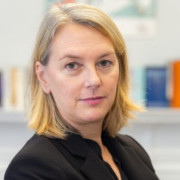
© DAAD
In 2019, Ruth Krahe takes over from Georg Krawietz as DAAD London director.
“I started my role as DAAD director on 1st November 2019. Remember, this day was one of the supposed “Brexit dates”! Personally, I was disappointed about the UK´s decision to leave the EU. In my view, in the field of Higher Education the benefits of being part of the EU clearly outweigh the disadvantages. And this is not primarily because of the EU funds. It´s about a long-standing and trustful network of cooperation, it´s about “being part of the club”, and I see my role as helping to sustain this network.”
Clearly, the pandemic has made it more than obvious: global challenges need strong international scientific collaborations. This is exactly what the DAAD stands for.Ruth Krahe
2022
Anniversary Festivities
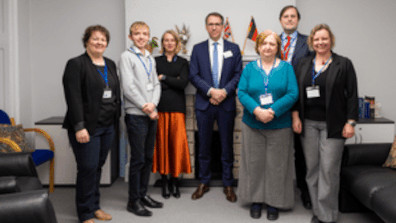
© DAAD/Falcone
In 2022, the DAAD London office launched its anniversary festivities with a housewarming event on 29 March 2022. Partner organisations, university representatives, Alumni and DAAD Lecturers attended the event in the new premises at 9 Gower Street to meet with DAAD Secretary General Dr Kai Sicks and DAAD London Director Ruth Krahe.
DAAD ‘Welcome Seminar’ 2022

© DAAD/Falcone
On Friday, 23rd of September, we welcomed the German scholarship holders starting their degrees in the UK/Ireland in 2022/2023. The day was filled with presentations and networking and included a welcome address from DAAD London Director Ruth Krahe, DAAD President Professor Joybrato Mukherjee as well as Members of the German Parliament Laura Kraft (Bündnis 90/Die GRÜNEN) and Ruppert Stüwe, (SPD).
Alumni Anniversary Alumni Event
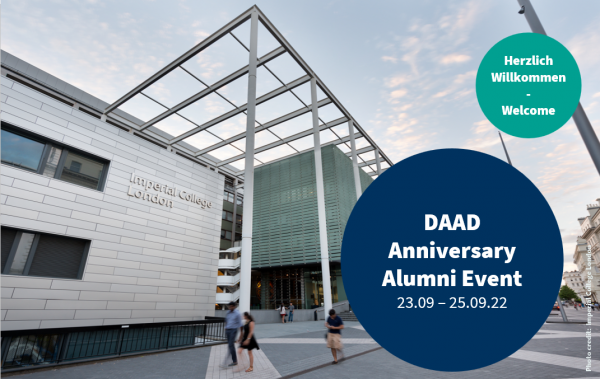
© DAAD
From 23-25 September 2022 the DAAD London office organised an Alumni meeting. After a reception for the British and Irish DAAD Alumni in the residence of the German Ambassador on Friday evening, the seminar started on Saturday morning at Imperial College London. The title of the seminar was ‘Science for Diplomacy – Diplomacy for Science: 70 years of UK and Irish–German Academic Collaboration’. After the welcome remarks of Professor Dr Joybrato Mukherjee on the topic of how we can shape UK-German academic relations for a bright future, keynote speaker John Kampfner, journalist and author, spoke about ,Knowledge and the knowledge economy – how countries can come together and move apart. The lessons for the UK and Germany’. Further discussions and presentations focused on the topics of student mobility, joint and double degree programmes and the work of Centres for German-British/ German-Irish cooperation. The programme on Saturday closed with a Science Slam where three DAAD Alumni presented their research in an accessible manner. The contestants received prizes provided by the DAAD Stiftung and celebrated with all participants of the seminar at the reception at the Goethe Institut London. The programme on Sunday focused on Irish-German collaboration as well as a the discussion on the future of higher education in a post-digital era in the context of mobility, cooperation and internationalisation.
German Language Competition 2022
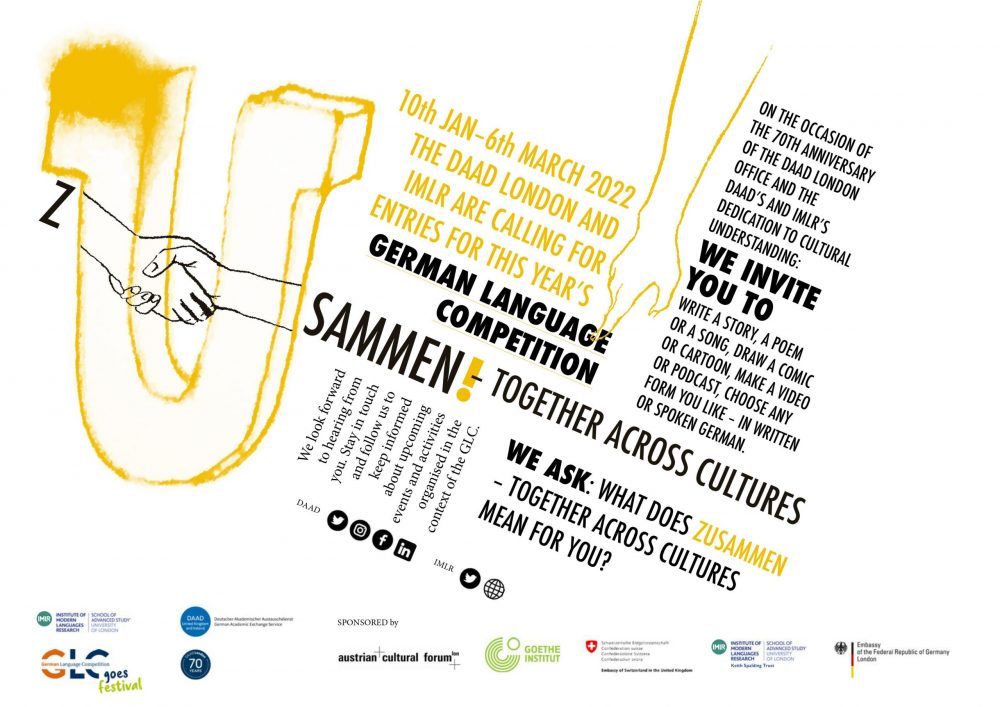
© DAAD
The DAAD London office has together with the Institute of Languages, Cultures and Societies organised this years’ Language Competition “Zusammen – Together across cultures”. For the prize-giving, all 15 winners were invited by Deputy Head of Mission Rüdiger Bohn at the German Embassy London to celebrate “Zusammen – Together across cultures”. During the festival, guests had the chance to explore all winning entries in an exhibition at the Ambassador’s Residence and to engage in fun activities such as a trip to Germany with VR Glasses. Guest of Honour Dalibor Marković gave an impressive performance of his spoken word poetry.
